Your Namibia self-drive itinerary: Full trip plans for 10 and 14 days

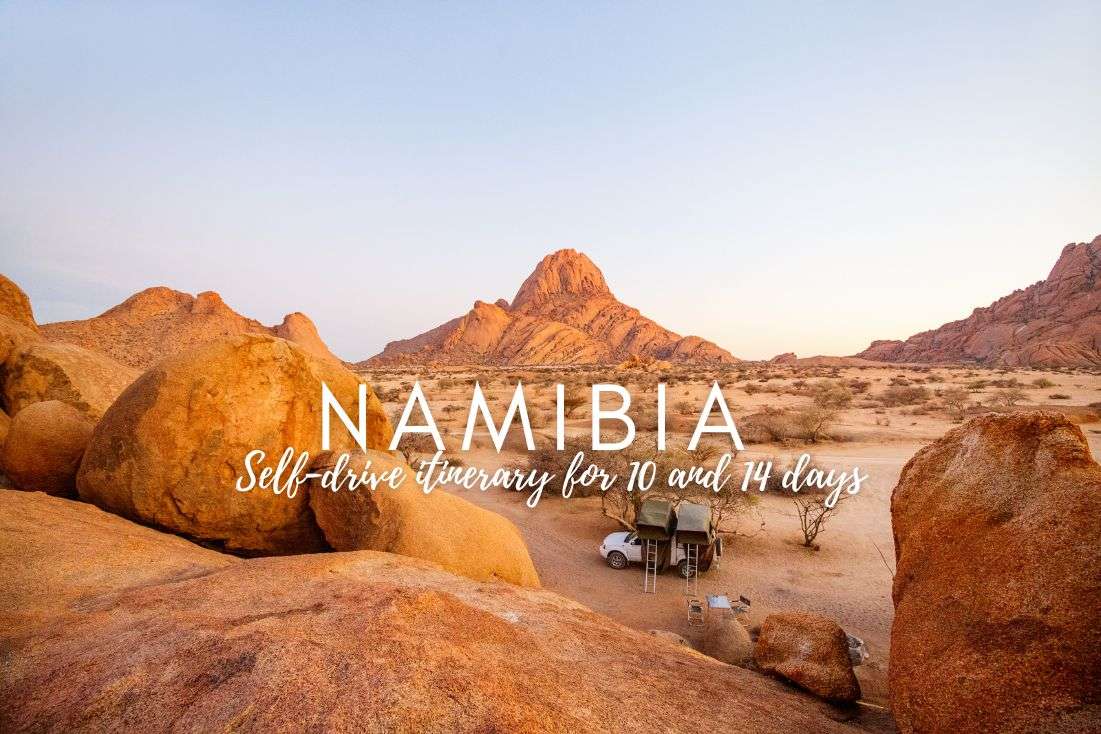
I’m not usually one to slow travel, but in Namibia, there’s literally no other way. You know I’ll pack this Namibia self-drive itinerary with activities, but getting from place to place is absolutely going to be one of the biggest time eaters of your trip.
There’s one thing that’s for sure though—self-driving in Namibia is the way to go. You will spend hours on the road, so you might as well do it in the comfort of your own vehicle and at your own discretion, without other peoples’ bathroom breaks and bad music choices to deal with. Is it just me, or does being stuck in a vehicle with strangers for large portions of your vacation not sound like a vacation?
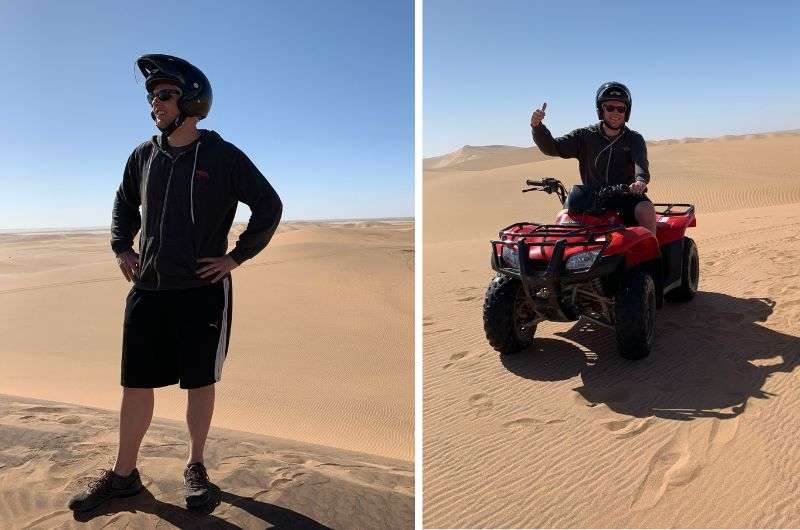
Ready to take on the desert
I’ve put together 2 detailed day-to-day itineraries for you: one for 10 days, and one for 14 days, both awesome. The main difference between the two is that the 2-week version includes the far-out wilderness wonderlands of Fish River Canyon and the Caprivi Strip.
First, I’ll tell you how to spend 10 days in Namibia, and then below I’ll add on 4 more days to make it 2 weeks.
Let’s go!
You could also be interested in reading:
- 10 Tips on Discovering Namibia’s Wildlife: How to See the Animals?
- Etosha National Park Safari: 9 Tips on Planning Your Perfect Visit
- All You Need to Know About Fish River Canyon: 18 Top Questions Answered
A note on hotels: You’ll notice some of the stops on this itinerary are your accommodation. It’s not just a scheme to get you to book a place through my affiliate link (though I’ll be mighty glad if you do! It costs you nothing extra, so no worries), but you’ll be staying in some pretty remote places where the main thing to do is your accommodation. It’s sometimes also the only place to eat. So, when I recommend that you stay somewhere, I’ve taken into account that it’ll be an actual destination on your Namibia itinerary, and I don’t take that lightly.
10 days in Namibia itinerary overview and map
Map showing the incredible distance you’ll cover in just 10 days in Namibia
Day 1: Arrive in Windhoek (sleep in Windhoek)
Day 2: Sossusvlei (sleep Burgsdorf Guest Farm)
Day 3: Dune 7, Walvis Bay (sleep in Swakopmund)
Day 4: Swakopmund, Cape Cross (sleep in Swakopmund)
Day 5: Swakopmund (sleep in Swakopmund)
Day 6: Spitzkoppe, drive to Etosha (sleep Ijaba Lodge Buschfeld)
Day 7: Etosha NP safari (sleep in Ijaba Lodge Buschfeld)
Day 8: Etosha NP safari (sleep in Ijaba Lodge Buschfeld)
Day 9: Waterberg Plateau (sleep in Winhoek)
Day 10: Departure
Day 1 of Namibia itinerary: Arrive in Windhoek
Main sites visited on day 1: The airport, your hotel, and maybe the city center (Christuskirche, Parliament Gardens, Independence Museum, Supreme Court of Namibia)
Restaurant tips: Cape Town Fish Market
Hotel recommendations: The Weinberg Windhoek hotel
Further reading: Namibia in a Nutshell | Self-driving in Namibia | Best hotels in Namibia
Disclaimer: I personally think that Windhoek offers absolutely nothing worth seeing or doing and can be skipped over without batting an eye—but flight times can result in you being stuck there for a part of the day, so I want to give you something to do there. If you feel like just hanging out in your hotel instead, you certainly can. I would. Or, skip sleeping in Windhoek altogether and spend the night at Burgsdorf Guest Farm right off the bat (tomorrow’s accommodation).
Day 1—Windhoek—stop 1: Airport
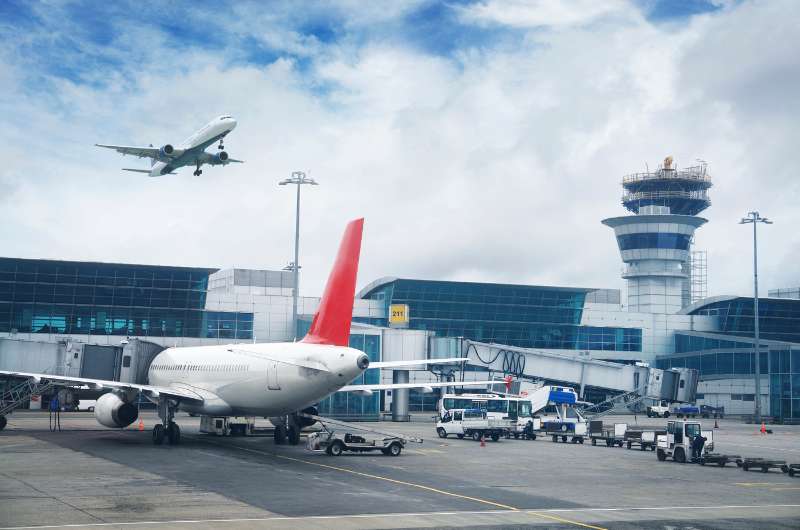
Hosea Kutako International Airport
I can probably safely assume you’ll be flying into Hosea Kutako International Airport, about 45 minutes east of Namibia’s capital, Windhoek. Make sure to rent a car right at the airport so you’re free as a bird right from the start.
You’ll want a 4x4, high-clearance vehicle, because without it, you literally can’t drive to the more faraway places on this itinerary... who am I kidding, they’re all far away. And sandy. We had the ultimate offroading vehicle and still had to have a ranger help us out of the sand at Sossusvlei!
So yeah, get a good car and dish out on insurance, because the chances you’ll need it are very high. Here are my tips on self-driving in Namibia, complete with a nice little story on why I was glad I paid the steep USD 1000 for car insurance.
Day 1—Windhoek—stop 2: Get settled in at The Weinberg Windhoek
I recommend taking advantage of the capital and making yourself comfortable while you still can! You’ll be staying in a bunch of nice places in Namibia, but still, they’re usually remote and so... deserty!
For Windhoek, I chose a nice hotel to the east of the city (convenient for travel from the airport!) that just happens to come with some fantastic restaurants (you must try Cape Town Fish Market), a spa, and panoramic views of the valley from the Sky Lounge.
You know, just in case your flight arrives in the evening and you can’t be bothered to go to the city. No need to go anywhere if you’re staying at The Weinberg!
Day 1—Windhoek—stop 3: See the city center
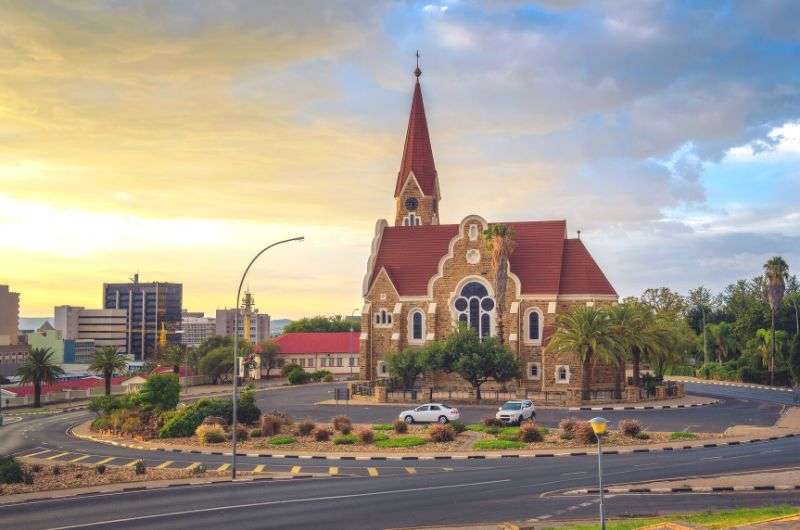
Windhoek gingerbread house, erm, I mean Christuskirche
If you do have some time to kill in the city (and the will to do so), head to the area around Christuskirche—a Hansel and Gretel-looking church in the middle of roundabout. It’s an iconic Lutheran church that’s fun (or funny) to look at.
The church is right by Parliament Gardens, a nice park area that’s worth a little wander, and the Independence Museum, with architecture that’s in severe juxtaposition to that of the Christuskirche. If you want to learn something about the Namibian colonial struggle, head into the museum.
Fun fact: The museum was a gift from the North Korean government. This explains the tasteless socialist architecture!
Then, pass by the Supreme Court of Namibia to Independence Avenue, which is the main street of town. You’ll find quite a few restaurant options in and around this area (though I still prefer to eat at the The Weinberg to be honest).
Day 2 of Namibia itinerary: Sossusvlei and semi-private safari @ Burgsdorf Guest Farm
Main sites visited on day 2: Sossusvlei, Deadvlei, Big Daddy and Big Mamma dunes, Sesriem Canyon
Restaurant tips: The Desert Restaurant @ Agama Lodge | Burgsdorf Guest Farm
Hotel recommendations: Burgsdorf Guest Farm | Kulala Desert Lodge
Further reading: How to see wildlife in Namibia | My guide to Sossusvlei | Best hotels in Namibia
Day 2—Sossusvlei—stop 1: Sossusvlei
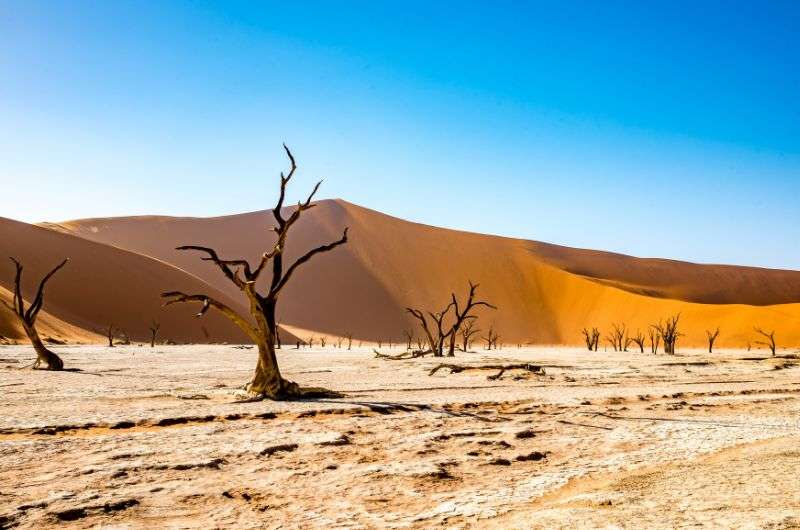
The skeleton trees in Deadvlei
Today, the driving begins! You better get yourself out of bed early, because the driving is intense, I’m really not kidding when I say that in Namibia, the journey is part of the, erm, journey. You know what I mean.
First, drive 4.5 hours from Windhoek to Sesriem, which is the gateway to the gem of Namib Naukluft National Park—Sossusvlei. This is one of the most well-known places to visit in Namibia (and it’s in the oldest desert in the world, too!).
You’ve seen the photos of the tree skeletons posing on the cracked, dry, pinkish ground with bright orange sand dunes in the background.
Read my Sossusvlei guide for all the juicy details on planning a visit!
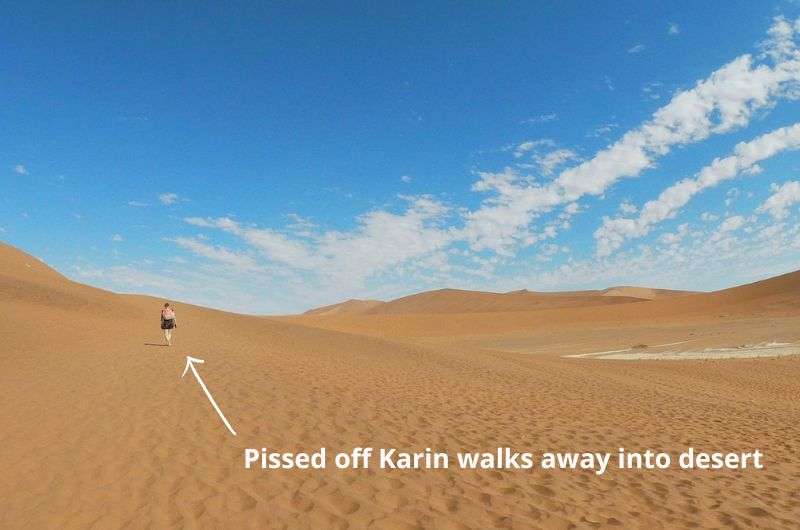
Walking in the neverending sand of Sossusvlei
And no matter how biased I am against deserts, I have to say Sossusvlei is incredible. The Sossusvlei main gate at Sesriem is open from sunrise to sunset, so about 6:30 am to 6 pm, and it’s where you buy your permits. Permit prices: NAD 80 (USD 4) per person and NAD 10 (USD 0.50) per car (permits are valid for 24 hours).
It’ll take you about another hour to drive from the gate to the Sossusvlei and Deadlei area where the dead camel thron trees will be patiently posing so you to take a ridiculous number of photos of them. You know, with you, without you, with your partner, with the both of you, with that oryx over there on the horizon, etc.
But wait, there’s more! You can also spend some time staring at (or climbing) Big Daddy and Big Mamma dunes, and taking a walk and a dip inside Sesriem Canyon.
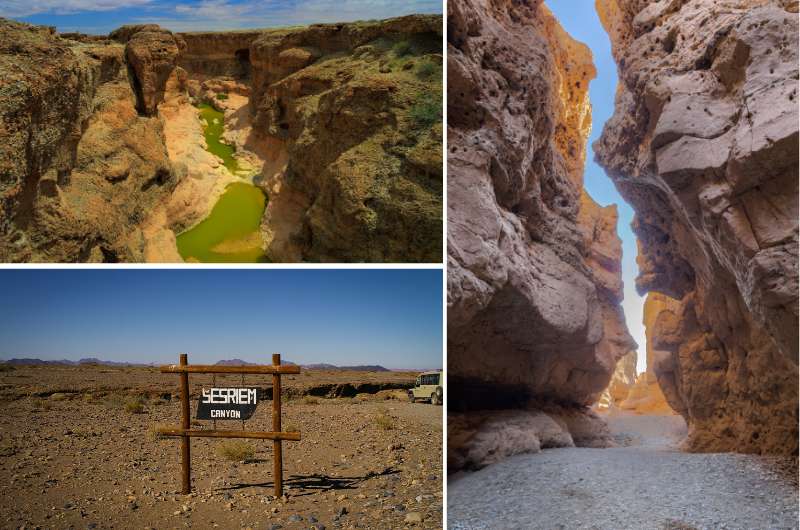
Sesriem Canyon
Just remember to leave in time to get to your accommodation before dark—you’ll need about 2.5 hours. The wildlife in Namibia love to hang out around and on roads, especially as the sun goes down. We had an unfortunate run-in with a wild pig about 20 minutes after sunset, so for the love of animals (and your rental car), don’t drive after dark in Namibia!
Alternative accommodation: If you think I’m nuts trying to get you to drive so much in one day, consider staying inside Namib Naukluft NP at the Kulala Desert Lodge. This way, you’ll cut out the driving and can even get to the Sossusvlei dunes and skeleton trees just in time for sunrise! If that’s your thing.
Day 2—Sossusvlei—stop 2: Burgsdorf Guest Farm
Get comfortable @ Burgsdorg Guest Farm
You’ll be spending the night at our personal favorite place to stay in Namibia, the Burgsdorf Guest Farm. It’s 2.5 hours away from Sesriem, but listen up:
Burgsdorf Guest Farm is such a special place where you’ll instantly feel at home—from the lovely hosts to the beautiful grounds (the photos on booking.com don’t do it justice AT ALL!). This is one of the few lodges I recommend that is literally in the middle of nowhere, but trust me, it’s so worth the trek.
My love for this place started not just because we could wake up and stare at rhinos from our bed! The hosts are the friendliest, most eager-to-serve (but not annoyingly) people you’ll meet. The restaurant is equally as impressive, and the pool is just a little bonus.
There’s a watering hole right next to the bungalows that the animals like to hang out at, and you can even have your dinner outside, spotting them. There are fences to prevent the animals from joining you for dessert, so no worries.
Day 3 of Namibia itinerary: Dune 7 and Swakopmund
Main sites visited on day 3: Dune 7, Walvis Bay, Swakopmund boardwalk
Restaurant tips: The Tug | Brewer & Butcher
Hotel recommendations: Driftwood Guesthouse | The Stiltz | Desert Rendezvous
Further reading: Unusual things to do in Namibia | My guide to Swakopmund
Day 3, stop 1: Dune 7
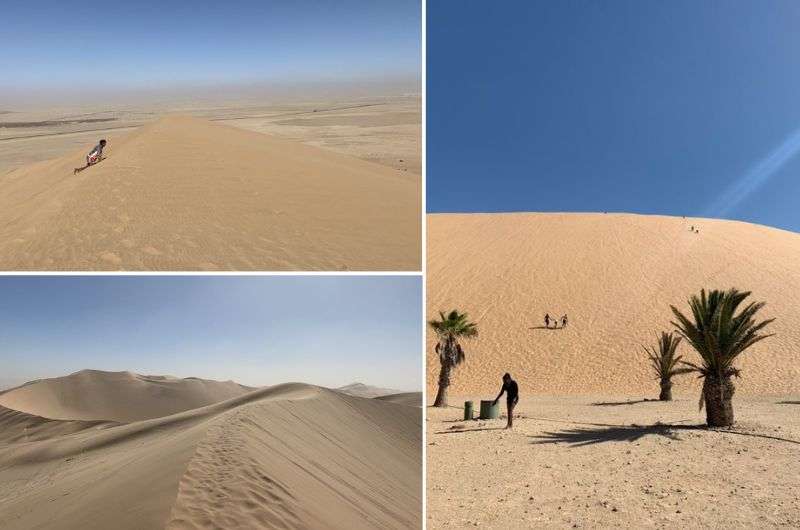
Dune 7
Before you set off today, take full advantage of the amenities and hanging out with human and animal friends at Burgsdorf Guest Farm. Once you’re ready to check out, buckle up for another 4-hour drive.
What will you see after spending half a day driving through the wide, unforgiving Namib Desert? A sand dune! Yep, that’s right: more sand.
But stay with me—it’s the tallest dune in Africa, standing at a whopping 383 meters (1250 feet) tall. You may have climbed sand dunes before, but trust me when I say that this one is different. Bigger. Better. And it’s very close to my favorite town in Namibia, Swakopmund, which will be your base for the next 3 nights.
It’s also a good reason to skip climbing Big Daddy and Big Mamma in Sossusvlei if you run out of time there or just don’t feel like it. You can rest assured you will, in fact, climb another dune.
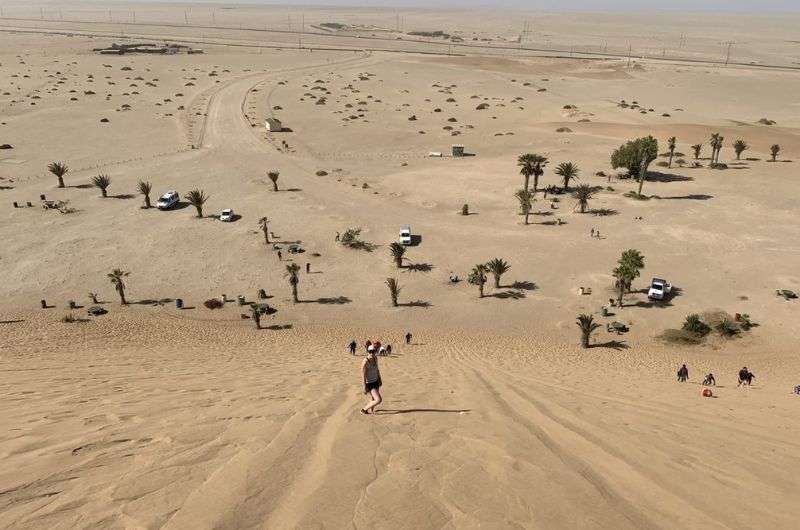
Taking a look back at the “parking lot” at Namibia Dune 7
Dune 7 is the only dune you absolutely must climb in Namibia. And it’s not like it’s a mountain of a dune, you’ll be up at the top in about 20 minutes. It takes a bit of stamina and a strong will to push yourself forward even as the sand pushes you back, but it’s manageable.
It’s easy to park at the parking are right beside Dune 7. Google Maps will take you there when you tell it to navigate to Dune 7. You’ll be asked to pay NAD 100 per person to be able to stop there and climb the dune. Bring cash.
Read more about visiting Dune 7 in my Swakopmund guide.
Day 3, stop 2: Walvis Bay
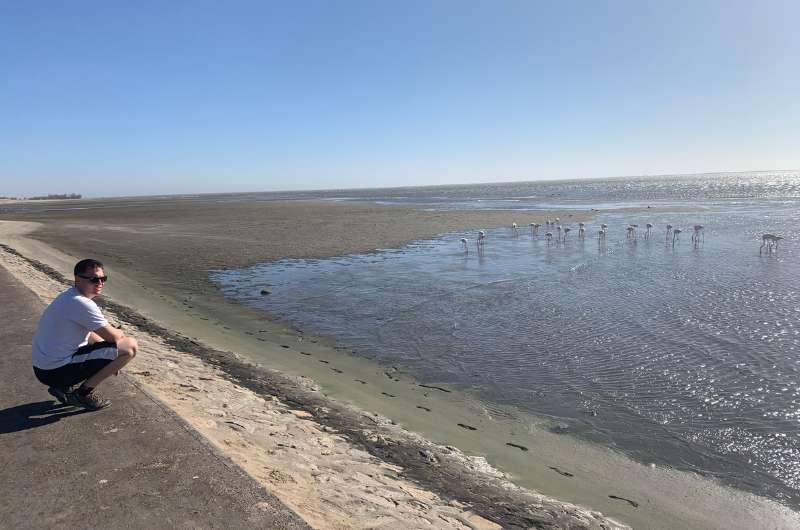
Checking out the flamingos in Walvis Bay
If you have time for one extra stop before you head to your hotel in Swakopmund, make a pit stop in Walvis Bay, just 20 minutes from Dune 7.
You can see the flamingos in Flamingo Lagoon, the salt works (with pink lakes!) in the southern section of the bay or the busy port up in Walvis Bay city.
Or, you can jump aboard a catamaran and try your luck at spotting dolphins and even whales on a 2- or 3-hour cruise—extra points if you choose the sunset ones! Even if you don’t see any big marine mammals swimming around, you’ll certainly get a kick out of all the pelicans and cormorants that’ll be landing on the boat, trying to snatch the snacks that the crew are handing out to them.
Catamaran Dolphin Cruises and Sun Sail Catamarans Namibia are two operators with great reviews.
Day 3, stop 3: Dinner in Swakopmund
Eating well in Swakopmund: Brewer & Butcher @ the Strand Hotel
It’s been a long day, so head to your final destination of the day: Swakopmund.
This city is the adventure capital of Namibia and my favorite place in the country. That’s why you’ll be staying here for 3 nights—there’s just so much to do in Swakopmund, and with plenty of good restaurants and hotels to choose from, it’s a no-brainer for the perfect base in the area.
We stayed outside of town at the lovely (and very much recommended) Desert Rendezvous, but if you’d prefer to be closer to the action, some other places I think are worth your love are Driftwood Guesthouse and The Stiltz.
Once you’re settled into your hotel in Swakopmund, take a stroll on the beach boardwalk. If you’re ready to chow down, stop by the pier at The Tug (because it’s made from an old tugboat). This is the place to have seafood in Swakopmund. The beauty of this place lies in its location, too-if you were any closer to the sea, you’d actually have to be on a (tug) boat.
If you can make it to the lighthouse and you're a fan of beer, don’t miss the chance to eat and drink at Brewer & Butcher, which is part of the Strand Hotel. You can imagine we were regulars there! The beer was great, the food was great, the service was a little slow, but we didn’t really mind.
Day 4 of Namibia itinerary: Cape Cross, quad biking
Main sites visited on day 4: Cape Cross Seal Reserve, quad biking
Restaurant tips: The Tug | Brewer & Butcher
Hotel recommendations: Driftwood Guesthouse | The Stiltz | Desert Rendezvous
Further reading: Most beautiful places in Namibia | My guide to Swakopmund | About Namibia
Day 4, stop 1: Cape Cross
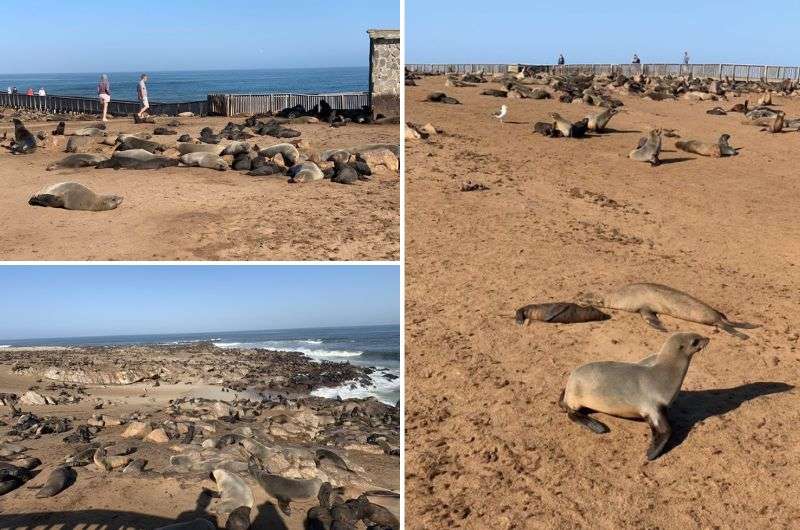
You can see the wooden walkway that helps you walk among the seals unharmed—they can bite
Today, you’ll see the very southern bit of the Skeleton Coast—Cape Cross, which is synonymous with tens of thousands of seals! They’re just hanging out on the beach and tourists are able to get really close, which is fun in my book!
The drive to Cape Cross from Swakopmund takes about 1.5 hours, parking is plentiful, and it’s easy to find since you’re just following the coast up north.
For me, Cape Cross is the highlight of the entire Skeleton Coast. I didn’t care much for the northern section of the Skeleton Coast, the part with the shipwrecks. That’s why this itinerary doesn’t include any other part of the Skeleton Coast, though if you wanted to, you could probably go in search for ship carcasses after you’re done with the seals. That’s the beauty of self-driving! You go where you please.
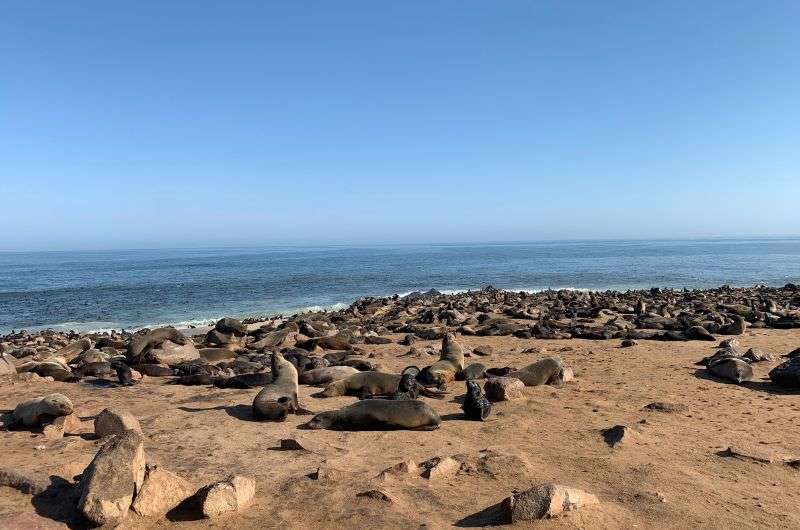
A flock of seals in Cape Cross
Speaking of carcasses, the Cape Cross seals are left to live and die naturally, which results in a very strong scent. It punches you in the face when you step out of the car at the entrance. So be prepared (can anything prepare you for the smell of death?!) and don’t bring your nice clothes. It literally took us days to wash the smell out of everything (including our hair!).
There is a wooden walkway that you can walk on to see the seals from—it’s right on the beach, on the middle of them all, so you’re literally right next to the animals.
- Cape Cross Seal Reserve on Google Maps
- Parking is easy and costs NAD 50 (USD 2.50)
- Open from 8 am–5 pm
- Tickets cost NAD 150 (USD 8.50)
Day 4, stop 2: Quad biking
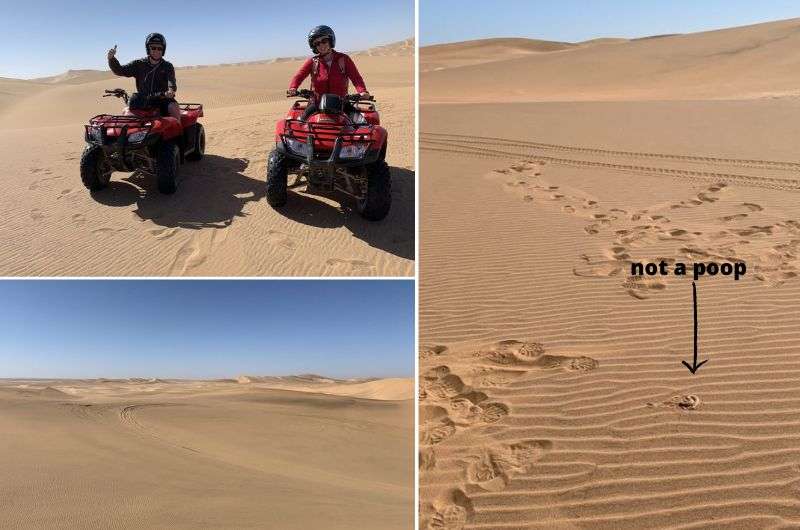
Sand, sand, and more sand! Perfect for quad biking
When you’re done exploring the desert, drive back to Swakopmund for some more driving in the desert. This time on quad bikes.
I thoroughly enjoyed our quad biking experience, and I think just about anyone would have a blast at it. We even saw snakes while driving around the sand dunes!
It’s also way less death-defying than skydiving, which is a very popular adrenaline activity in Swakopmund. But I’m more than happy to stay on the ground, thanks. If you are, too, there are several shops in Swakopmund that offer activities, and not just quad biking and skydiving. There’s also fat bike riding for those of you that want to stay on the ground and go slowly, but also sandboarding, kayaking, paragliding, and others.
A quad bike ride will take anywhere between 30 minutes to 2 hours and can be done individually or in a group, depending on your preference. I’d recommend Namibia Desert Explorers for its professional service and good bikes.
The price for a 1-hour quadbiking experience is around NAD 550 (USD 30) per person. Beginners are welcome, so no excuses and go give it a whirl!
Day 5 of Namibia itinerary: Snakes galore!
Main sites visited on day 5: Tommy’s Living Desert Tour, Snake Park
Restaurant tips: The Tug | Brewer & Butcher
Hotel recommendations: Driftwood Guesthouse | The Stiltz | Desert Rendezvous
Further reading: Unusual things to do in Namibia | My guide to Swakopmund | Most beautiful places in Namibia
Day 5, stop 1: Tommy’s Living Desert Tour
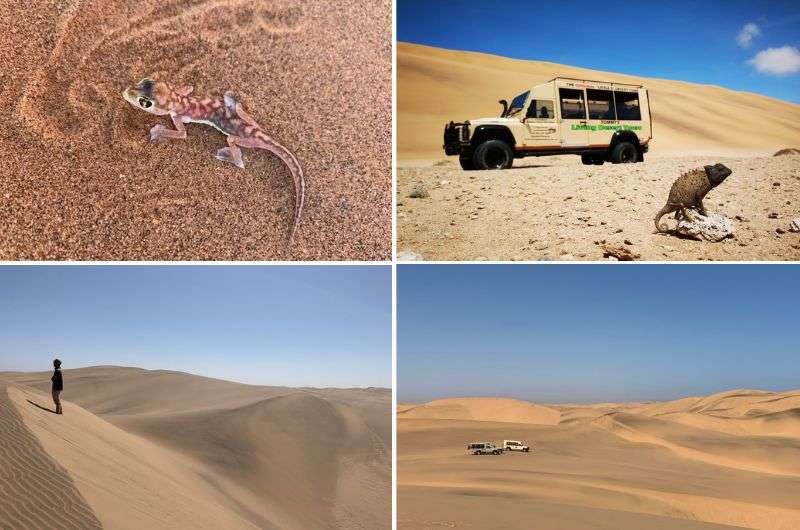
I totally fell in love with all of the critters on Tommy’s Living Desert Tour
Today, you’ll see snakes! And other creatures, too, but man, aren’t snakes just the most enticing creatures in the world? You’ll go on an incredible desert discovery tour that’ll make you fall in love with the Namib Desert’s resident reptiles and amphibians!
Don’t you just love the thought of a sand viper hiding in the sand right in front of you? I do.
I can wholeheartedly recommend Tommy’s Living Desert Tour, a 4–5 hour tour where they drive you out into the desert a little south of Swakopmund and then proceed to look for, find, and show you all kinds of creatures.
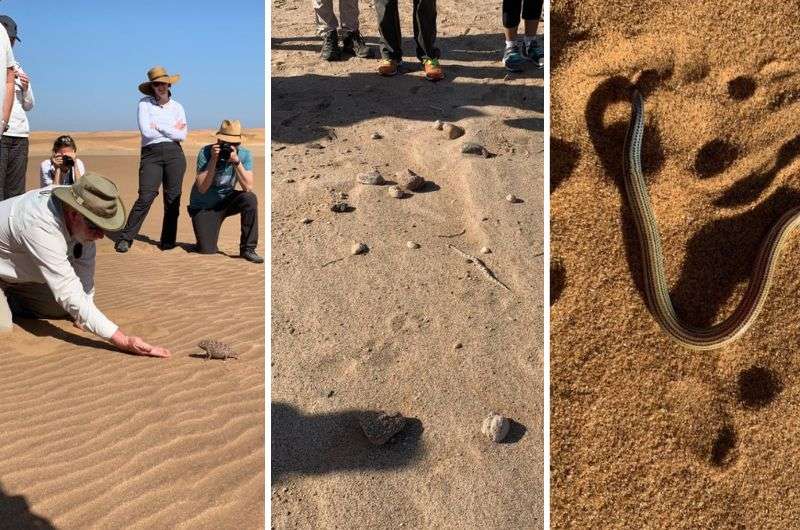
Tommy’s Living Desert Tour is the best thing you will do in Namibia! It’s like a scavenger hunt, but with wild snakes and lizards
Tommy’s guides are second to none, making the tour both informative and entertaining. They’re desert gurus!
They have a tour every morning and sometimes in the afternoons, too, depending on the weather. Every tour ends with a chance to chill out on the dunes for a little while with a snack.
- Tommy’s Living Desert Tour
- Tours run daily at 8 am (and some afternoons, too)
- Tickets cost NAD 850 (USD 45) per person and include drinks and snacks
Day 5, stop 2: Snake Park
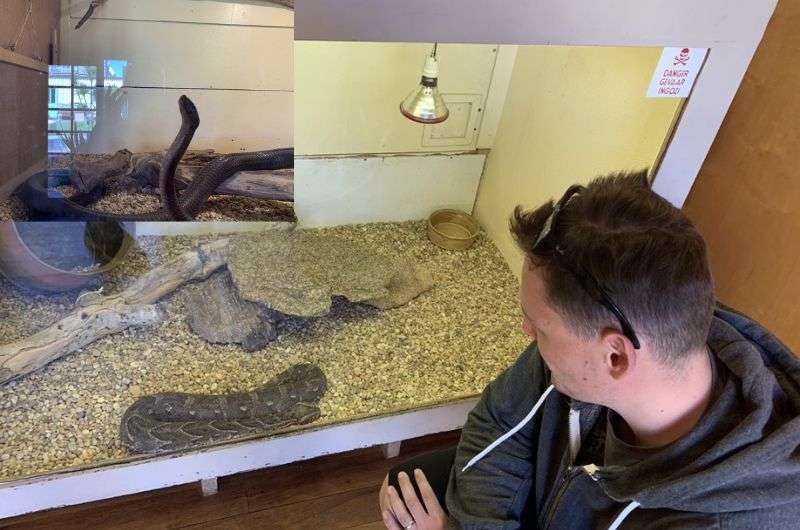
Hello, my lovelies
Namibia is a snake paradise, with over 80 species that slither around the country. But you aren’t going to be able to see any of the big guys on Tommy’s Living Desert Tour. For that, head to today’s next stop: the Swakopmund Snake Park.
At the Snake Park, you’ll see all kinds of Namibian snakes, including the deadly Black Mamba, the stunning Cape Cobra, the Zebra Snake, and my favorite, the Puff Adder. These snakes are both adorable and dangerous, which makes them all the more captivating to stare at (through glass, obviously).
There are also other critters such as big lizards and turtles, but I was too fascinated by the snakes to pay any attention to them.
You’ll need about an hour to see everyone.
- Snake Park on Google Maps
- Open daily 9 am–7 pm, 10 am–4 pm on Sundays
- Tickets cost NAD 100 (USD 5) for adults
Day 6 of Namibia itinerary: Spitzkoppe and drive to Etosha NP
Main sites visited on day 6: Spitzkoppe, your lodge
Restaurant tips: Oasis Food Stall| Ijaba Lodge Buschfeld
Hotel recommendations: Ijaba Lodge Buschfeld
Further reading: Planning a visit to Etosha NP | Namibia’s most beautiful places | Self-driving in Namibia
Day 6, stop 1: Spitzkoppe
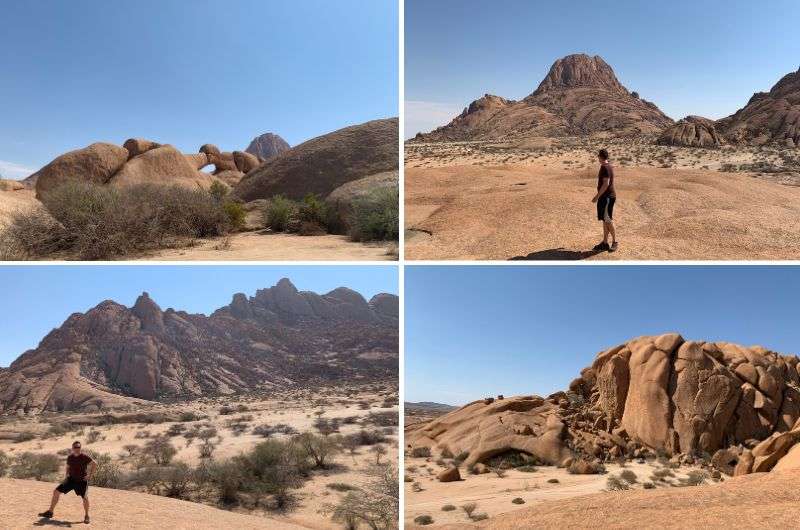
You have to see this
It’s time to pack your bags again and get ready to sit in your car a lot, you’re moving on to Namibia’s best safari: Etosha National Park! But, before you get there, you’ll stop at the biggest (granite) rock in the world, Spitzkoppe! I don’t know about you, but I like me some granite.
Getting to Spitzkoppe from Swakopmund takes about 1.5 hours, which is easy peasy, but get an early start or else suffer the wrath of the sun! Even in the winter, it can reach a blistering 35°C (95°F). So, bring your sunscreen, some loose clothes, and maybe a really wide hat.
Hit the trails for some amazing drives or take a walk to explore the incredible scenery on foot. You can even just take a wander from where you park your car, but make sure to at least climb up and around Rock Arch (aka the Bridge) and see it from all different angles. You can also dip your legs in Rock Pool.
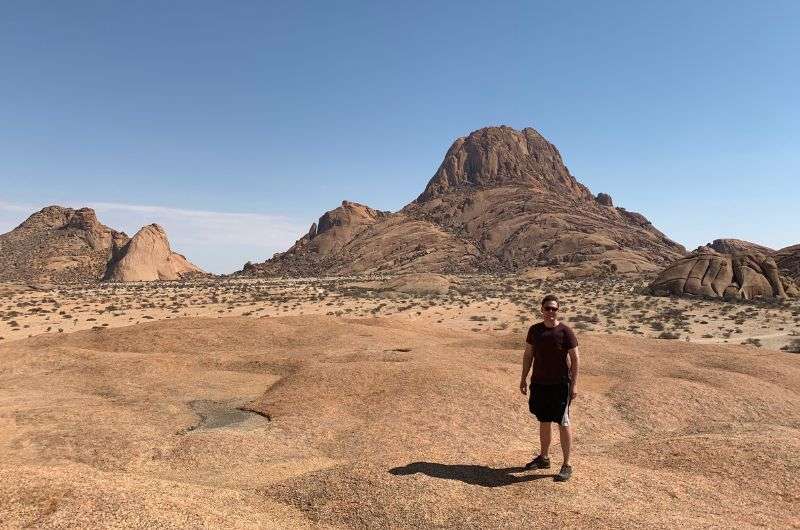
The Big Rock... and Spitzkoppe behind me
Spitzkoppe is also steeped in history. The San people, who have lived in the area for thousands of years, consider it a sacred site. They left behind some cool, well-preserved murals on the rock walls. Take a guide to show you exactly where to look (it’s not hard finding one, they will literally find you, so you don’t even need to try).
There’s also a Himba cultural village at Spitzkoppe. I didn’t visit, because I’m really not into human zoos, but you can if you want to see how they live (or that they care to show you).
Day 6, stop 2: Get ready to safari at Ijaba Lodge Buschfeld
Ijaba Lodge at Buschfeld is the best accommodation outside of Etosha NP safari
You’re in the second half of your Namibia travel itinerary (10-day and 14-day variant), but you still haven’t been to a game park?! Well saddle up, because Etosha National Park is Namibia’s best and biggest safari. You’ll want 2 full days there, so book your accommodation for 3 nights. Unfortunately, you’ll also take half a day to drive there, so you won’t see the animals just yet.
But don’t fret, because the accommodation you’ll be staying at (if you take my advice that is) is a destination in its own right—Ijaba Lodge Buschfeld was one of the best lodges we stayed at in Namibia.
From Spitzkoppe, expect to take at least 4 hours to drive to Ijaba Lodge.
Now, here's the thing about Etosha NP: the services suck, the bureaucracy is appalling, and the accommodation is overpriced and in no way looks like the photos online. Luckily, you’re going for the animals, not the humans, and the animals are way cool.
That’s why I strongly encourage you to stay outside of the national park, like at Ijaba Lodge Buschfeld, which in Namibia is like a block away, but in reality is about 1 hour from the Anderson Gate of Etosha National Park. (Read my tips on driving in Namibia if you are still confused why an hour is nothing.)
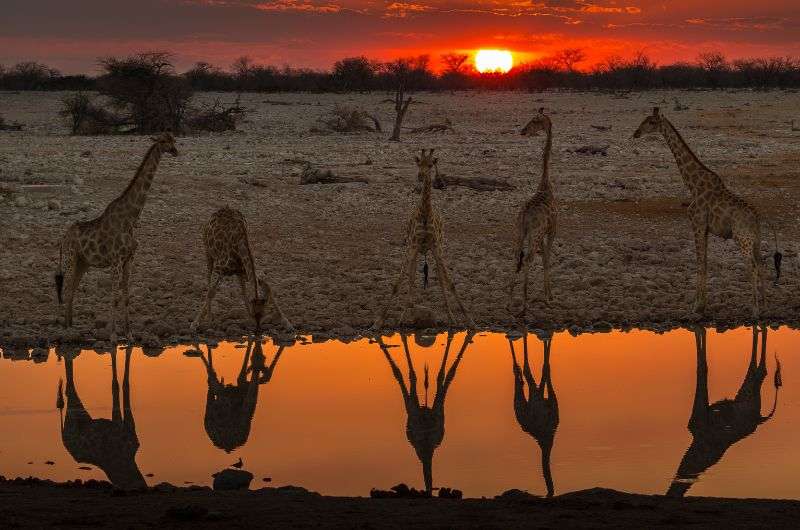
Checking out the animals after dark
Note: The only reason it would make sense to consider staying a night inside the park is if you were dead set on going on a night safari in Etosha NP. You would have to book that through one of the lodges or campsites and there’s no leaving the park after sunset.
At Iljaba, think outdoor swimming pool, delicious food in the restaurant, and, as a bonus, black mambas, and zebra snakes (if you’re lucky)! The rooms are cozy and clean and just perfect for a rest after a day exploring the safari.
Settle in, grab some dinner (another game steak, anyone?), and get ready to see some elephants!
Day 7+8 of Namibia itinerary: Etosha National Park Safari
Main sites visited on days 7+8: Etosha NP Safari
Hotel recommendations: Ijaba Lodge Buschfeld
Further reading: Planning a visit to Etosha NP | How to see wildlife in Namibia | Namibia’s most beautiful places
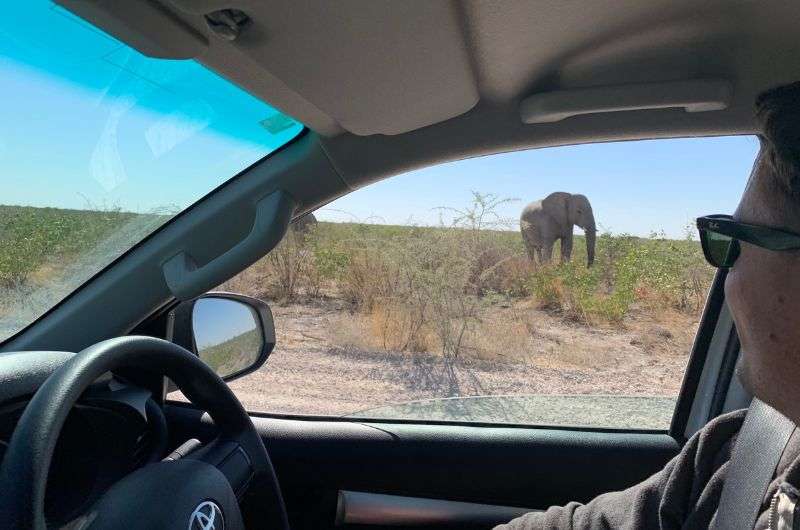
We also observed some peaceful elephants from a safe distance and from the stable, solid, and comfortable Toyota Hilux
Today and tomorrow is all about the wildlife. Etosha National Park covers an area of over 22,000 km2 (8,500 square miles), so there’s plenty of land to cover over to days.
The vegetation differs throughout the park, so you’ll see each of the 114 animals species that live in Etosha in different areas. So no worries, today will not be like tomorrow.
After a hearty breakfast at your accommodation, drive 1 hour to Etosha National Park. You’ll enter through the Anderson Gate in the southern part of the park, and get your tickets at the ticket counter.
I have a full guide on visiting Etosha NP safari—read it for all the details on planning your trip.
I want to say that you should arrive early in the morning to avoid waiting times, but it doesn’t even matter. There were zero people in line when we got there and it still took 30 minutes to buy our tickets. Pay the entrance fee of NAD 80 (a whopping USD 5) per adult per day, and NAD 10 (about USD 0.70) per vehicle per day. Kids under 16 get in for free. Online tickets aren’t available.
Then, get back in your car, and stay in it. It’s best to keep all limbs inside your vehicle as well, just in case you meet a lion who thinks you look tasty.
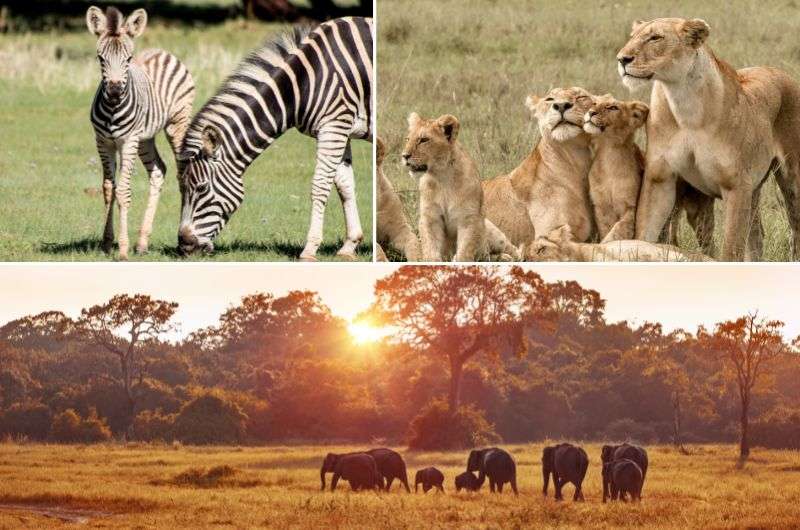
It’s like National Geographic, but you’re part of the show!
Etosha National Park Safari is HUGE and will certainly be a highlight of this self-drive itinerary, and it’s all thanks to the wonderful and weird creatures you’ll get to see, straight from your car window. Zebras, giraffes, elephants, rhinos, ostriches, lions, and so much more!
The animals like to hang out at the watering holes that are all over the national park. You’ll know if anybody is taking a dip and a sip from a mile away because there will be vehicles stopped on the road closest to it. Note: Don’t be fooled by Google Maps, there is, in fact, not a huge lake in the middle of Etosha NP. It’s a dried-out pan, so the watering holes are really the water the animals rely on.
Etosha NP Safari is open year-round. Opening hours vary by season and follow sunrise and sunset times. There are night safaris as well (you’ll go on one tomorrow!).
There’s one thing that the lodges inside the park are useful for: food! Get your lunch at one of the properties.
- Etosha National Park official website
- Google Maps link to Anderson gate
- Open daily year-round from sunrise until sunset
- Tickets cost NAD 80 (USD 5) per person per day plus NAD 10 (USD 0.70) per vehicle per day. Under 16s enter for free.
Day 9 of Namibia itinerary: The Waterberg Plateau (with cheetahs!)
Main sites visited on day 9: Cheetah Conservation Fund, Waterberg hiking trails
Restaurant tip: The café at the Cheetah Conservation Fund
Hotel recommendations: The Weinberg Windhoek | Babson House
Further reading: Namibia’s most beautiful places | Unusual things to do in Namibia
You may feel like you’ve seen every animal under the sun after visiting Etosha National Park for the past two days, but you’d be wrong. You haven’t seen a cheetah yet, have you? And maybe not even the last of the Big Five, the African Buffalo. We’ll take care of those two on today’s trip.
Day 9, stop 1: Cheetah Conservation Fund
You can even see cheetahs right from the veranda of the Babson House!
Just 1.5 hours from Ijaba Lodge, overlooking the Waterberg Plateau, are several private game farms that have come together to form the Cheetah Conservation Fund. That’s where you’re heading to learn all about the fastest feline on the planet.
Visit the CCF Visitor’s Center, museum, cafe, and gift shop, all in the name of saving the spotted kitties from extinction.
You can also see them in action: there’s a daily feeding, a morning cheetah run, and a cheetah drive during which you can meet the resident cheetahs that couldn’t be released out into the wild.
For an extra special cheetah addition to this Namibia itinerary, check yourself into the top spot for cheetah lovers, the Babson House! Cheetahs literally come so close to the house that you can just relax on your veranda and watch them. Sunset with cheetahs, anyone?
Day 9, stop 2: Seeing the plateau
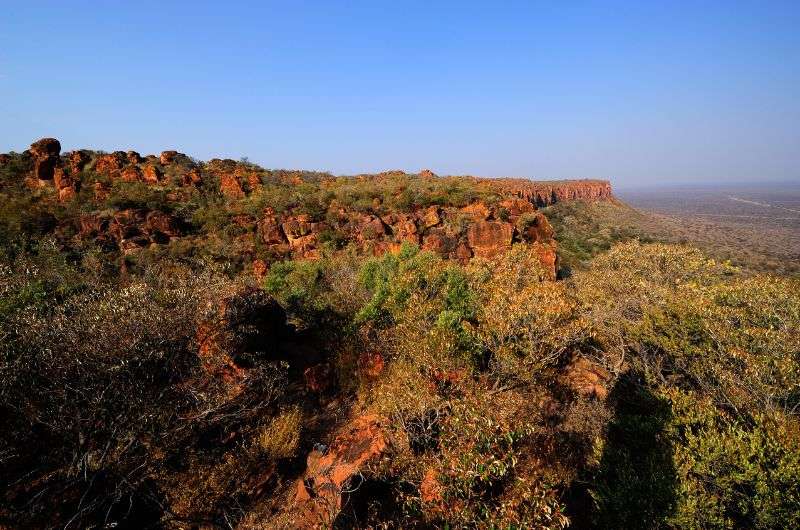
Waterberg Plateau
Since you’re already here, make a day of it (just watch your driving times so you aren’t on the road after dark!).
The Waterberg Plateau is a flat-topped mountain that towers over the surrounding plains. It’s a great place to hike and enjoy the scenery. It is almost your last day in Namibia, after all! Most Waterberg hiking trails start at either NWR Waterberg Camp or Waterberg Plateau Lodge, both of which provide guides as well.
If you’re keen on seeing more animals, such as African buffalos, giraffes, leopards, and rhinos, you can do that as well. Note that you may need the help of a guide to track them, especially if you’re hoping to find them while on foot. I haven’t tried this but it could be a fun alternative to driving around to see wildlife like you’ve been doing for the past couple of days.
Day 9, stop 3: Back to Windhoek
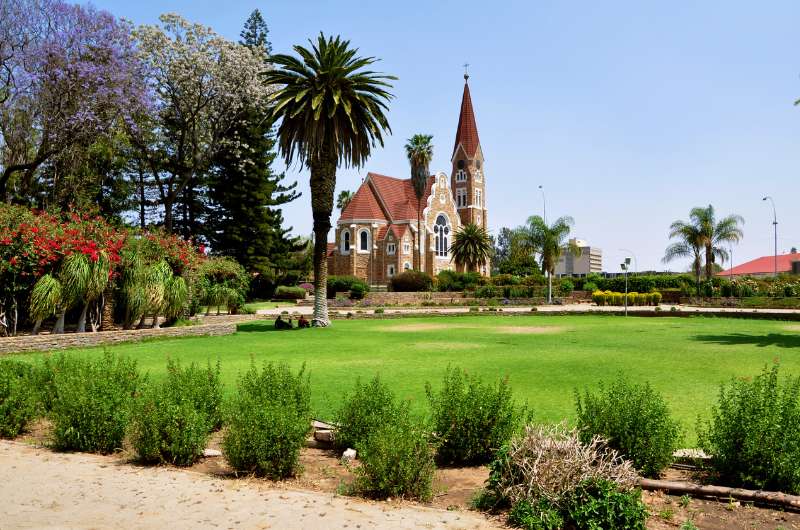
Windhoek
When you’re all cheetah’d out, it’s time to head back to Windhoek for your flight home tomorrow. From the Cheetah Conservation Fund, allow at least 3.5 hours to get to the capital.
I’m going to recommend the same hotel I did at the beginning of this itinerary, The Weinberg Windhoek. It’s the most convenient, location-wise, for a comfortable trip to the airport tomorrow. Plus, since you’ll probably be arriving hungry as a hippo, you’ll be happy to have all the Weinberg’s restaurants to choose from.
Day 10 of Namibia itinerary: Departure
Further reading: Namibia’s most beautiful places | Unusual things to do in Namibia
Day 10, stop 1: Windhoek
You might not have time for anything today if you have an early flight, but if you do, here are some extra places you can visit in Windhoek:
- Namibia Craft Centre—get all your souvenirs here!
- National Art Gallery of Namibia
- TransNamib Museum—for train enthusiasts
- Soulstice Day Spa—because 10 (or 14) days in Namibia takes its toll! (It’s right next to the Weinberg Hotel)
Day 10, stop 2: Airport
It’s time to say good-bye to Namibia! The Hosea Kutako International Airport is about 45 minutes east of Windhoek. Gather your belongings and return your rental car, pretty soon you’ll be hearing “make sure your seat backs and tray tables are in their full upright position and that your seat belt is correctly fastened”!
14-day Namibia self-drive itinerary extension and map
A map of the full Namibia itinerary for 14 days
Can you spend more than 10 days in Namibia? Great! You can extend the above 10-day itinerary to two weeks by adding Fish River Canyon and the Caprivi Strip. Here’s how:
Day 1: Arrive in Windhoek (sleep in Windhoek)
Day 2: Long drive to Fish River Canyon (sleep near Fish River Canyon)
Day 3: Fish River Canyon
Day 4: Long drive to Burgsdorf Guest Farm
Day 5: Sossusvlei (sleep at Burgsdorf Guest Farm)
Day 6: Dune 7, Walvis Bay (sleep in Swakopmund)
Day 7: Swakopmund, Cape Cross (sleep in Swakopmund)
Day 8: Swakopmund (sleep in Swakopmund)
Day 9: Spitzkoppe, drive to Etosha (sleep Ijaba Lodge)
Day 10: Etosha NP safari (sleep in Ijaba Lodge)
Day 11: Drive to Caprivi Strip
Day 12: Caprivi Strip
Day 13: Drive to Waterberg Plateau (sleep on Waterberg Plateau)
Day 14: Waterberg Plateau (sleep in Windhoek)
Day 15: Departure
I know, I know, it ends up being 15 days, but this really depends on what time you fly in and out of Namibia. I’ve also taken 1 day away from Etosha National Park Safari in order to accommodate enough time to drive to the far-flung Caprivi Strip. I figure you’ll be continuing your wildlife spotting there, so you may not need 2 days in Etosha anyway. If you do, you’ll need to take time off of someplace else or extend your trip a little bit more.
Here are the detailed trip plans for the extra days of the 14-day Namibia itinerary:
After arriving in Windhoek and possibly seeing some of its highlights (see Day 1 of the itinerary above), continue with this extension:
Day 2 of 14-day Namibia self-drive itinerary: Drive to Fish River Canyon
Main sites visited on day 2: Keetmanshoop, your hotel, sunset viewpoint
Restaurant tips: The Barrelhouse Bar and Restaurant | Canyon Roadhouse
Hotel recommentation: Fish River Lodge | Canyon Roadhouse
Further reading: Guide to Fish River Canyon | Namibia’s most beautiful places | Best Lodges in Namibia
Day 2, stop 1: Lunch in Keetmanshoop
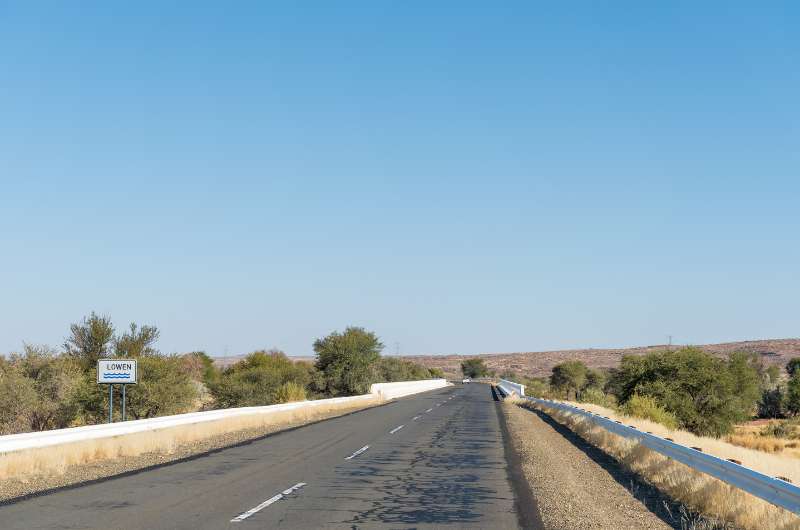
Let’s go to Keetmanshoop
You’ll start your self-drive tour of Namibia appropriately: with a whole lotta driving! Hey, you wanted a road trip in Namibia, so no complaining.
Today, your main activity is the 7-hour long drive down from Windhoek to Fish River Canyon. Just remember it’s the second largest canyon in the world, so it’s worth a little hassle, right?
About 5 hours into the drive you’ll be passing through the last largish town before you get to Fish River Canyon, Keetmanshoop. I say that sounds like the perfect place to have lunch—try the best-rated place in town, the Barrelhouse Bar and Restaurant.
The town also has a grocery store and gas station that you should take advantage of. You have to fill up your tank every chance you get in Namibia (more self-driving tips in my article)
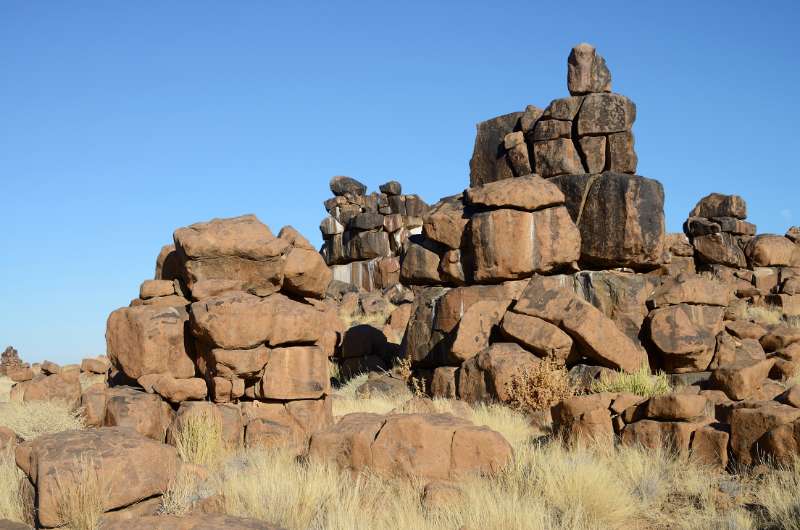
Giant playground in Keetmanshoop
Once you reach Keetmanshoop, you’re about 2 hours away from your accommodation if you’re staying on the Hobas side.
There’s no reason to stay anywhere else unless you plan on going on the full 4–5-day hike and camping in Ais Ais in the south. You have no time for that kind of canyon exploration on this itinerary, but if you want to see what it’s all about, read my Fish River Canyon guide.
Day 2, stop 2: Fish River Lodge or Canyon Roadhouse
Fish River Lodge—luxury on the canyon's edge!
When you’re choosing a place to call home for the next two nights, you’ll want to consider your budget and the activities you want to do while at Fish River Canyon.
The best places to stay at Fish River Canyon are:
Fish River Lodge: If you can afford it, this is where you want to stay. You’ll get your very own chalet on the canyon rim, and I mean that literally. With views like these straight from your private terrace, who needs to go hiking anyway?
Plus, Fish River Lodge basically has a monopoly on the best day trips into the canyon. And guess who can go on those great day trips? Only Fish River Lodge guests.
That said, if you do stay at Fish River Lodge, you are on the other side of the canyon than the famous viewpoint at Hobas and it is much too far to be worth driving there at all. But again, you’d be sleeping on the rim. Is there really a better viewpoint?!
Retro vibes @ Canyon Roadhouse
Canyon Roadhouse: Everyone and their cheetah know about Canyon Roadhouse. If you aren’t staying there overnight, I’m 99% positive that you’ll at least eat there, get gas there, and most certainly fill your Instagram with pics you take there.
This photogenic place is filled with vintage Fords and Chevys, and the bar and restaurant are so cool that they’re always busy, even in this far-out neck of the woods. And it’s not just for looks, the food at Canyon Roadhouse is some of the best you’ll get in Namibia.
Guests staying at Canyon Roadhouse also have a pool to relax in. The guesthouse is part of the Gondwana Collection, and they also do day trips of sorts, though they take you further north and not to the main part of the canyon.
All that and you’re just a 15-minute drive from Hobas, where the main viewpoint of Fish River Canyon can be found.
Whichever accommodation you choose, you’ll be in good hands.
Day 2, stop 3: Sunset viewpoint
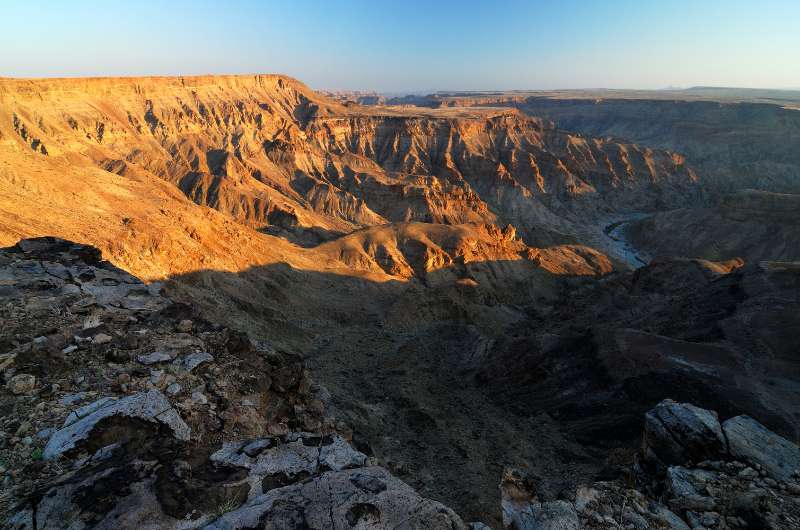
Fish River Canyon, viewpoint at Hobas
If you can muster up enough energy after being on the road all day, you could spend the last minutes of the day staring into the canyon during sunset. If you chose to stay at Fish River Lodge, that’s as easy as grabbing a beer and throwing your legs up at the terrace that has a built-in sunset view.
For everyone else, the best place to go is the viewpoint at Hobas.
Just about any accommodation would also be happy to take your money and organize a sunset picnic for you.
Day 3 of 14-day Namibia self-drive itinerary: Fish River Canyon
Main sites visited on day 3: Hobas viewpoint, Swaelbron lookout point, Ais Ais (or activity in canyon)
Restaurant tips: Canyon Roadhouse
Hotel recommendation: Fish River Lodge | Canyon Roadhouse
Further reading: Guide to Fish River Canyon | Best Lodges in Namibia
Day 3, alternative 1: Day hike inside Fish River Canyon
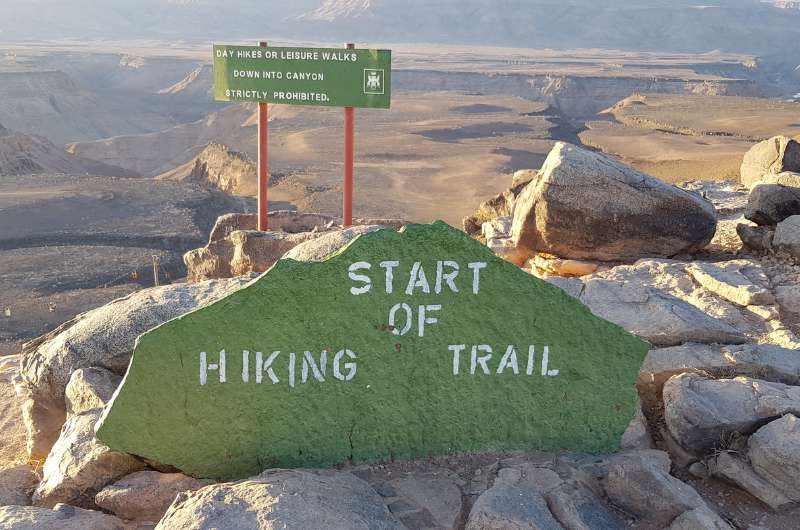
Let’s go!
Today, you have all day to explore Fish River Canyon. I’ve already mentioned that you can’t do on a day trip into the canyon without a guide, so you’ll need to decide on what you want to do and book that activity at your accommodation.
The options include day hikes into the canyon, canyon drives (only available through Fish River Lodge), fat bike tours, and all kinds of guided rim hikes.
Note that the day hike down into and back up from the canyon floor is strenuous and takes 8 – 10 hours total.
Day 3, alternative 2: Hit the viewpoints and hot springs
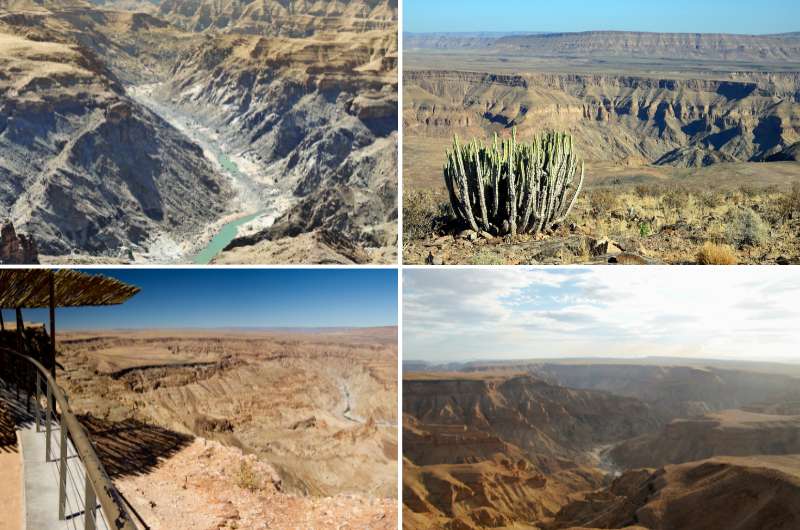
The many faces of Fish River Canyon
If you don’t care to kill your knees on a hike inside the canyon, I’m happy to report you can enjoy your day just as much by just staying up on the rim.
First, head to the viewpoint at Hobas. This is the main spot at Fish River Canyon that is almost mandatory to visit, because it boasts the most panoramic view of the canyon that you’ll find anywhere. There’s a nice patio area set up with information panels, benches, and some shade (I’d skip the toilets though) where you can start your staring marathon.
Just make sure you bring some extra cash to pay the conservation fee of NAD 50 per person and NAD 20 per car.
You can also drive all the way along the rim up to Swaelbron lookout, stopping along the way to indulge in some serious canyon-staring. Just make sure your vehicle is up for the challenge, or otherwise just take a long walk along the rim. Plenty of places to look into the abyss from there.
There are also hot springs at Ais-Ais that honestly aren’t anything that special, but I’m including this info for anyone that wants a little soak. This is usually where people end the full Fish River Canyon hike, so maybe you can make sweaty, smelly people-watching an activity as well. Ais Ais is a 1-hour drive from Hobas.
Days 4 of 14-day Namibia self-drive itinerary: Drive to Burgsdorf Guest Farm
The next two days are almost the same as days 2 and 3 of the 10-day itinerary, just in a slightly different order of stops because of the driving distances.
Since Fish River Canyon is so annoyingly far in the south of the country (seriously, couldn’t they have put it in a better spot?!), the drive back up north takes a while. Five hours, to be exact. So spend day 4 driving to Burgsdorf Guest Farm, get settled in, have some incredible on-site dinner, and watch the sun go down as the rhinos hang out at the water hole.
Day 5 of 14-day Namibia self-drive itinerary: Sossusvlei
Day 5 is allotted to Sossusvlei, the one-of-a-kind spot that’s on all the photos of Namibia. The plan of this day is described in Day 2 of the 10-day itinerary, expect you’ll be starting out at Burgsdorf Guest Farm. That means you are only 2 hours away from the main Sossusvlei gate at Sesriem.
Read my Sossusvlei guide for all the juicy details on planning a visit!
Days 6–10 of 14-day Namibia self-drive itinerary
Follow the 10-day itinerary from day 3 until day 7, which takes you from Dune 7 through Swakopmund and Spitzkoppe to Etosha National Park Safari (where you have 1 full day on this 14-day itinerary).
Day 11 of 14-day Namibia self-drive itinerary: Drive to the Caprivi Strip
Main sites visited on day 11: Hoba meteorite, and a long, long road, your bed
Restaurant tips: Purple Fig Bistro
Hotel recommendation: Divava Okavango Resort & Spa
Further reading: How to see wildlife in Namibia | Unusual things to do in Namibia | Best lodges in Namibia
After a very long day filling your wildest wildlife dreams at Etosha Safari yesterday, continue your itinerary with a very long day filled fulfilling your boring driving dreams. Driving to the Caprivi Strip—the northeastern corner of Namibia—will take you all day and there’s not much to see on the way.
Day 11, stop 1: Hobas Meteorite and lunch
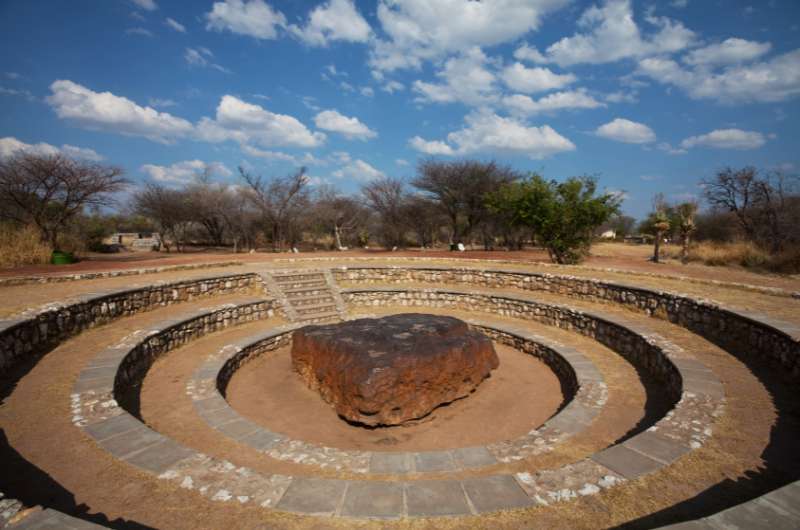
Hobas Meteorite, the biggest rock that hit the Earth and lived to tell about it
Three hours into your 8-hour drive, you can stretch your legs a little by stopping at a big space rock. The Hobas Meteorite is the biggest on Earth, weighing a hefty 50 tons.
It honestly doesn’t look like much, but it’s on the way, so why not. Actually, spending USD 12 for the 10 minutes tops you’ll need eyeing the big, black rock could be a reason not to go.
Luckily, just a few minutes away in a town called Grootfontein is one of the few good restaurants you’ll encounter on your way to the Caprivi Strip, so I recommend stopping for something to eat at Purple Fig Bistro (the next options would be a further 3 hours away in Rundu).
Day 11, stop 2: Dinner, massage, and sleep @ Divava Okavango Resort & Spa
Divava Okavango Resort & Spa Hotel
From Grootfontein, haul a$$ for 5 hours until you finally get to your destination: the Divava Okavango Resort & Spa.
Listen, I’m not forcing you to stay at this particular resort. Yes, I get a small commission if you book anything through my affiliate links in this article (at no cost to you whatsoever). But for the mother of unicorns, I am a self-proclaimed research nerd and picky sleeper, so if there was something better out there, I’d find it and tell you about it.
Since you only have a full day in the Caprivi Strip, you don’t want to base yourself someplace so far that you’re almost in Zimbabwe, right? And like I said in my Best Lodges in Namibia article, I wouldn’t go as far as to call Divava Okavango Resort luxury (they call themselves that), but all things considered, you’d be hard-pressed to find a nicer property in these parts.
So yeah, that’s why I feed you the accommodation in this itinerary. I truly believe I choose the best places to sleep. Mike drop.
Divava Okavango Resort & Spa Hotel is located right by the Okavango River with views over the waters from their rooms, the terrace at the restaurant, and even the little massage huts.
The chalets feature more space than you’d ever need in your vacation home. The real star of the show is the spacious bathroom with a freestanding bath set up by floor-to-ceiling windows with views of the river. If you're lucky, you might even spot some wildlife from the comfort of your tub!
Last but not least, you’ll be happy to know that there’s also a pool and that Divava’s on-site restaurant offers some fine choices, like the outstanding five-course menu.
Day 12 of 14-day Namibia self-drive itinerary: Caprivi Strip
Main sites visited on day 12: Mahango Game Reserve, Buffalo Game Park, boat tour, Popa Falls
Restaurant tips: Divava Okavango Resort & Spa
Hotel recommendation: Divava Okavango Resort & Spa
Further reading: How to see wildlife in Namibia | Unusual things to do in Namibia | Best lodges in Namibia
Today, it’s all about Namibia’s wildlife and nature. You can see elephants, buffalos, lions, and leopards (among others) in the Mahango Game Reserve, just a 10-minute drive from Divava Okavango. It’s a much smaller game reserve than Etosha, so it’s easy to visit for just a couple of hours.
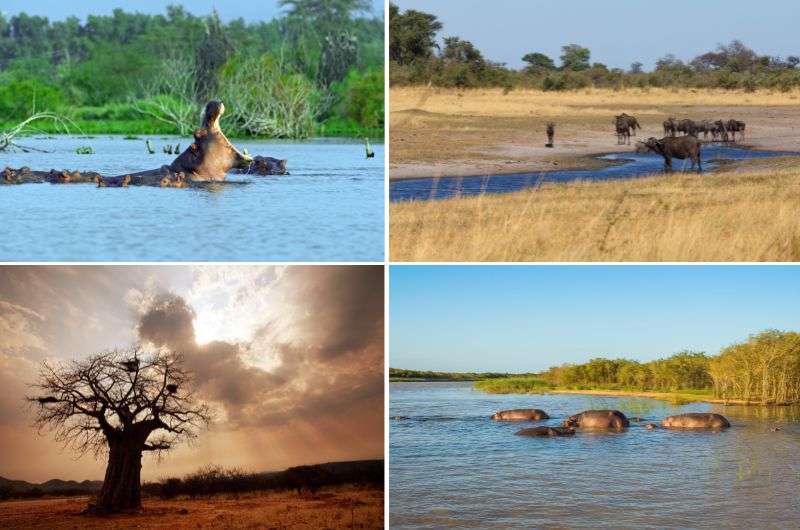
If you want to see hippos, you need to head to the Caprivi Strip
You know how there are no buffalos, hippos or crocodiles in Etosha? Guess what?! These guys are the real reason you came all the way out to the Caprivi Strip (there are also baobabs that I think are extremely cool even if you don’t like the Little Prince).
It’s best to book a boat tour through your accommodation if you want to go looking for hippos. They are, after all, the deadliest animal on the planet for humans, so don’t go trying to chase them on your own!
And while you technically can visit Buffalo Game Park on your own (if you have a proper 4x4), consider going with a guide there as well. The infrastructure in the Caprivi Strip is minimal, so having someone with you who can take you to the best spots and help you not get stranded on a particularly offroad-y section can be a godsend.
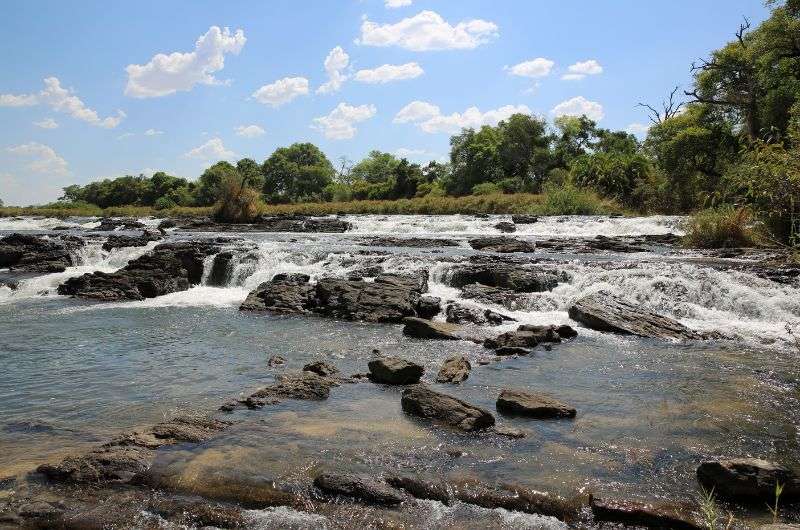
Popa Falls in Caprivi Strip
There are also Popa Falls, located literally around the bed from Divava Resort, which look more like rapids, but ok, they’re still a nice place to visit. You’ll even hear them while you have dinner on the terrace at the restaurant at Divava Resort.
Divava Okavango Resort & Spa offers tours to all the places mentioned here. If you decide to go on your own, just make sure you have a good enough car (high clearance, 4WD) and ideally a satellite phone (they can be rented). The further out you plan to go, the more important it is to have the right equipment with you. This really is wild Africa!
Day 13 of 14-day Namibia self-drive itinerary: Drive to Waterberg Plateau
Today is another big travel day, as you say goodbye to the Caprivi Strip and drive 7 hours down to the Waterberg Plateau. The only difference between the 14-day itinerary and the 10-day itinerary is that on the longer version, I recommend you spend the night under the plateau.
You’ll get to Waterberg far too late to explore much of anything today, but you’re sure to enjoy the sunset with the incredible scenery around you. Check yourself in at either the Babson House or at another lodge close to the Cheetah Conservation Fund Visitor Center. That way, you can be up early enough to see the daily cheetah run!
Day 14 of 14-day Namibia self-drive itinerary: Cheetah Conservation Fund and drive to Windhoek
Day 14 follows in part day 9 from the 10-day Namibia itinerary: visiting the Cheetah Conservation Fund, plus a little bit of hiking or driving in the Waterberg Plateau area if time allows. You still have to drive 4 hours to Windhoek today!
Remember, don’t drive after dark in Namibia, the animals are like vampires and love to come out to play when the sun goes down.
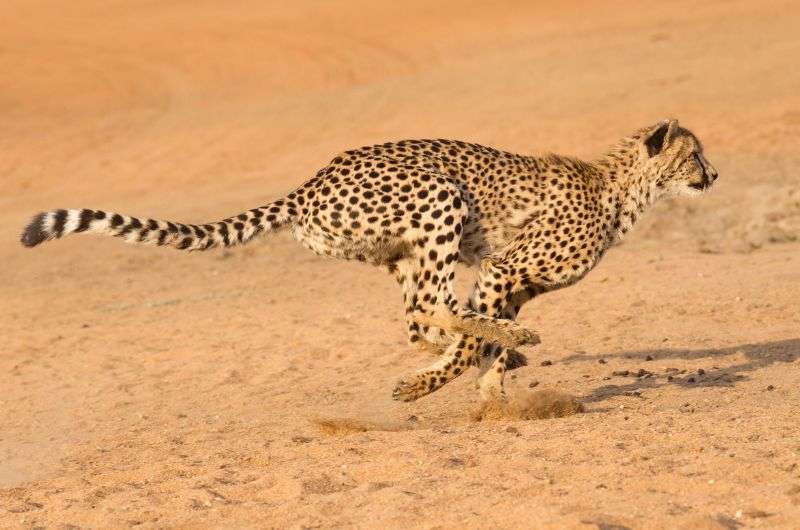
These cats are fast and super cool, but unfortunately, there are fewer and fewer of them due to poaching. I hate humans.
Stay your last night in Namibia at the The Weinberg Windhoek hotel. Check the final day of the 10-day Namibia itinerary if you need ideas for some extra spots to check out in Windhoek.
This post contains affiliate links. I earn a small commission if you make bookings through my links, at no additional cost to you. This helps keep this blog free, thank you!


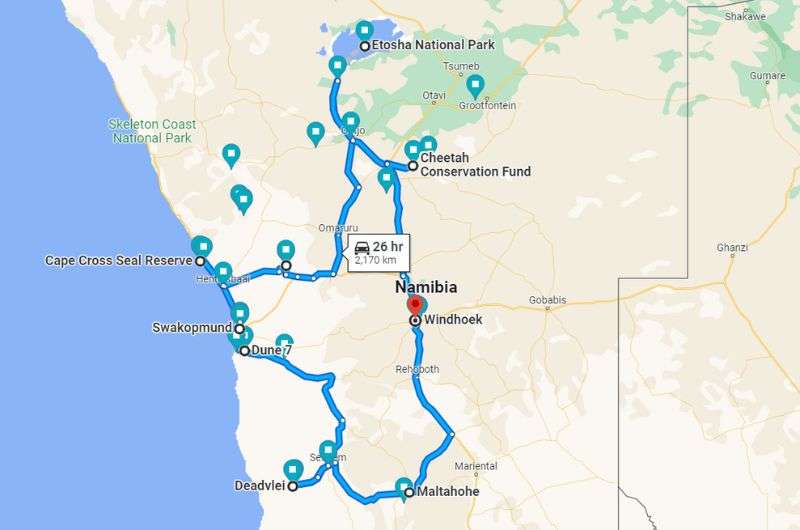
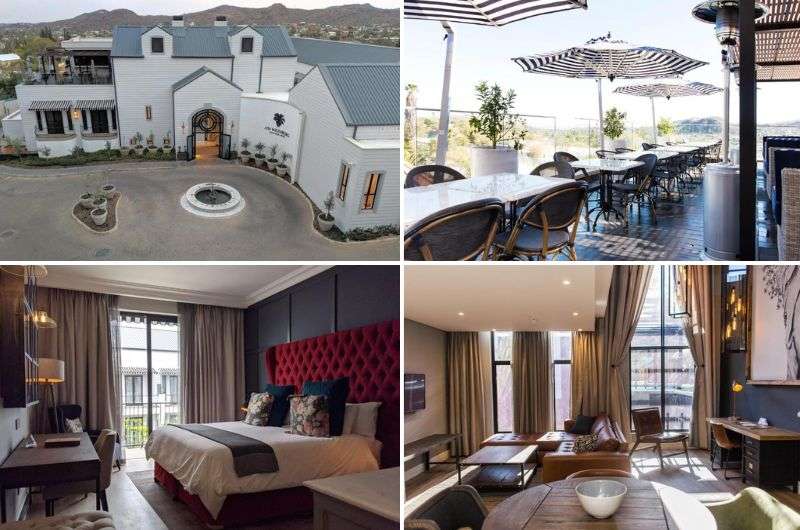
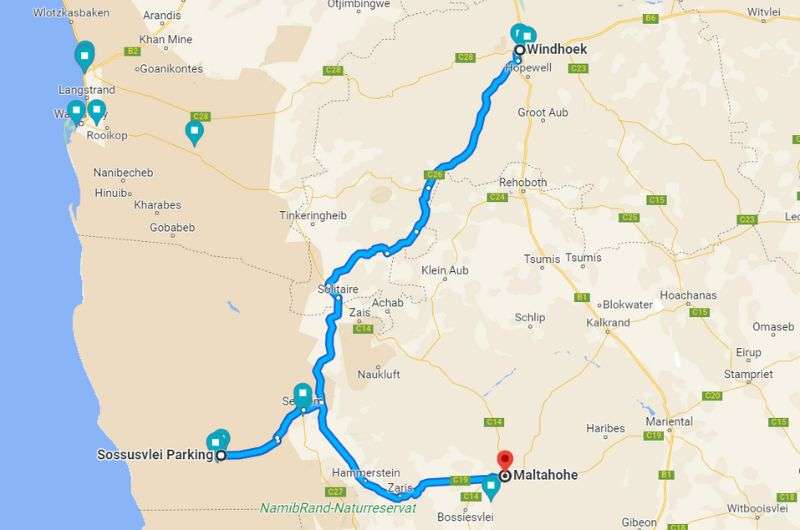
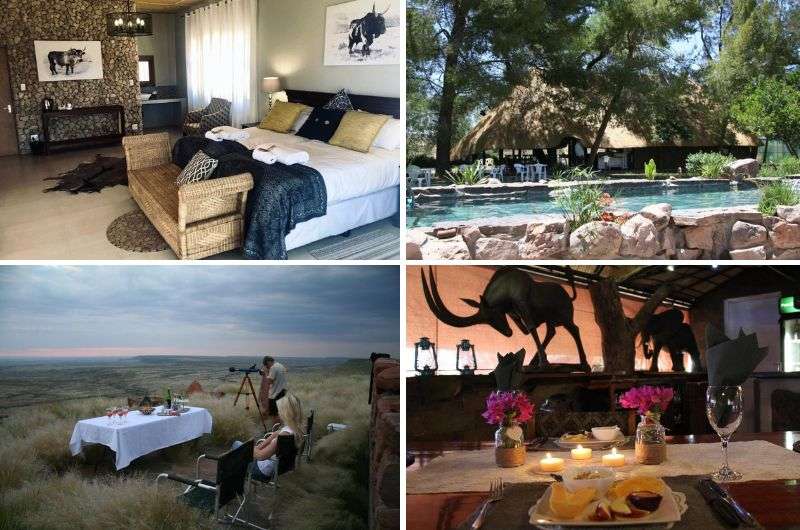
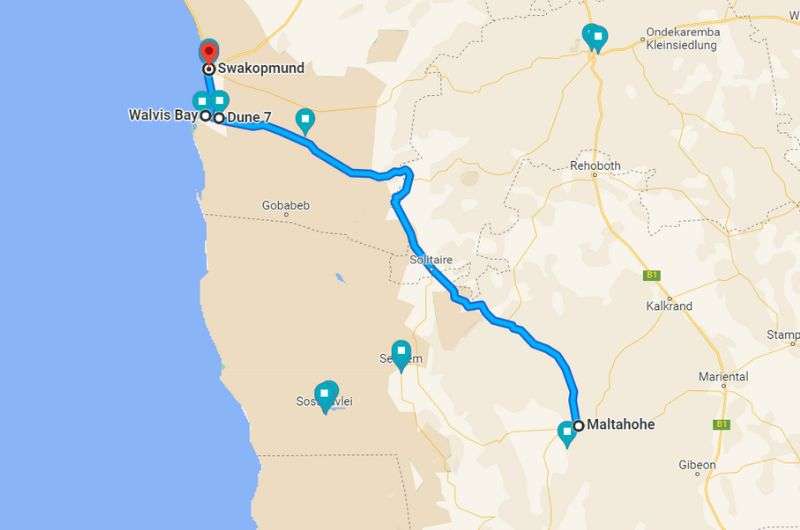
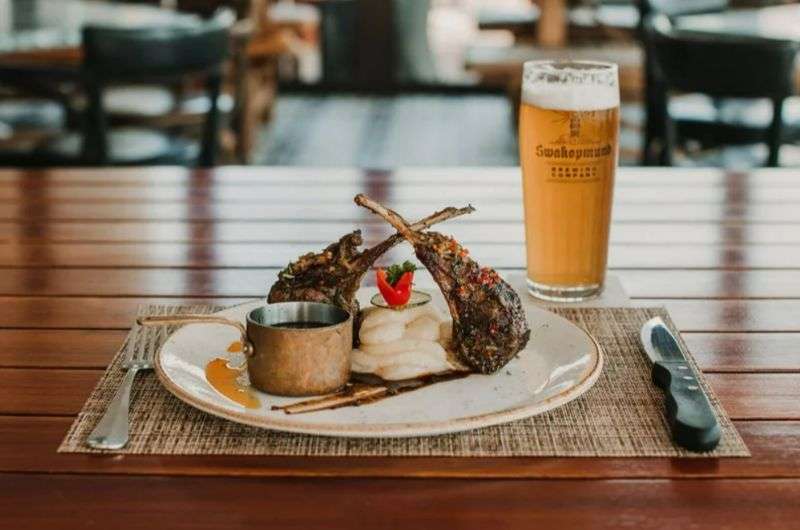
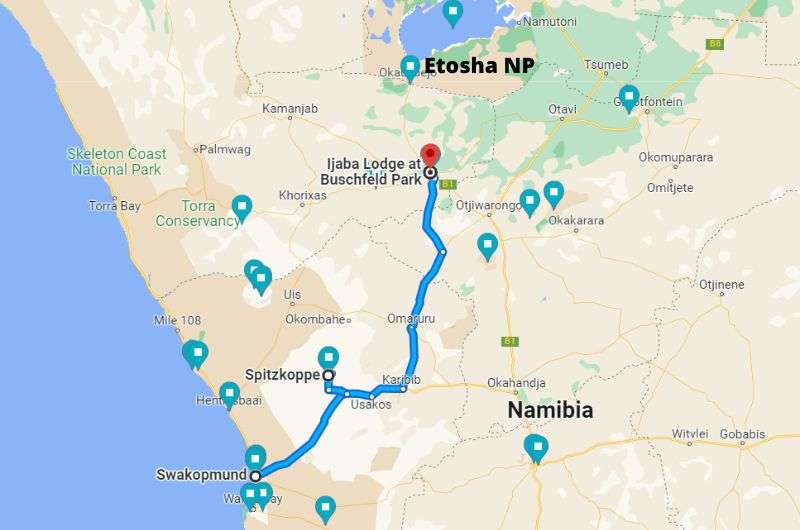
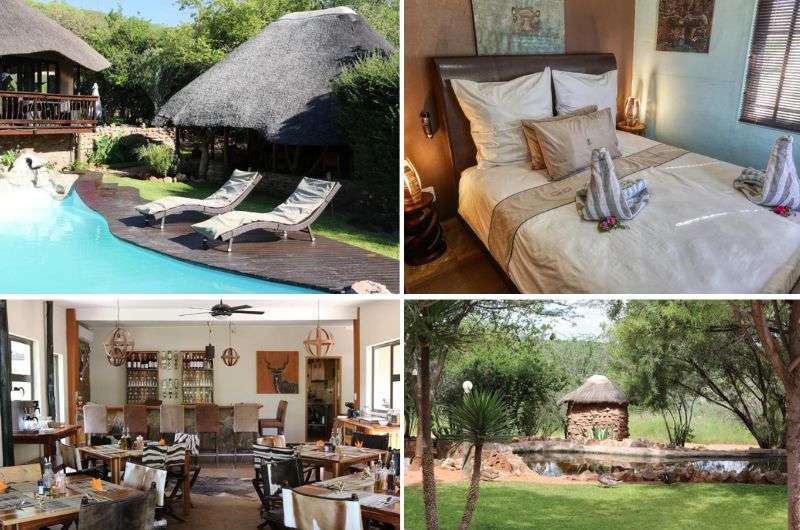
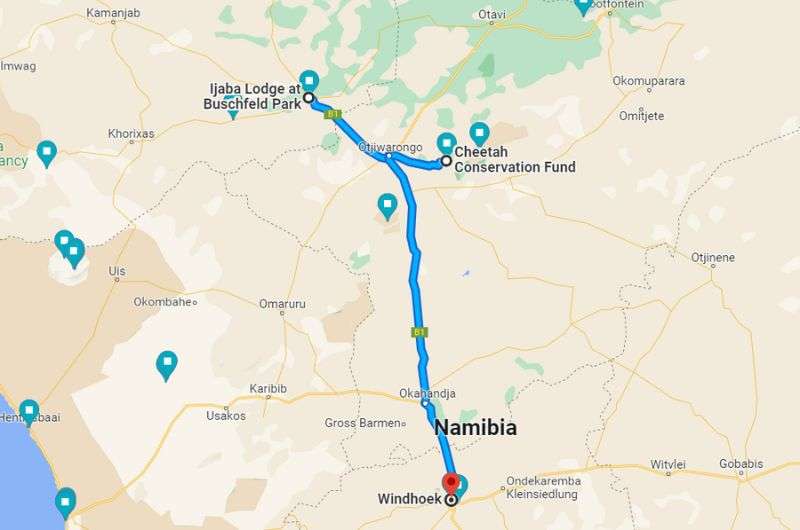
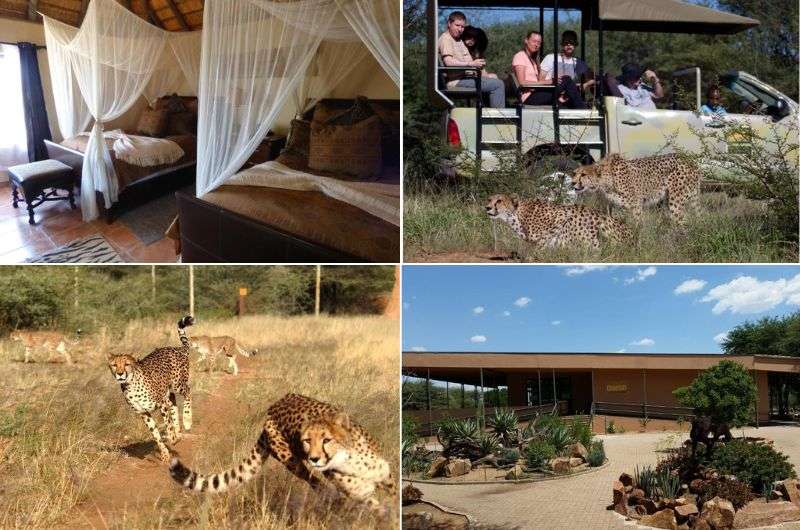
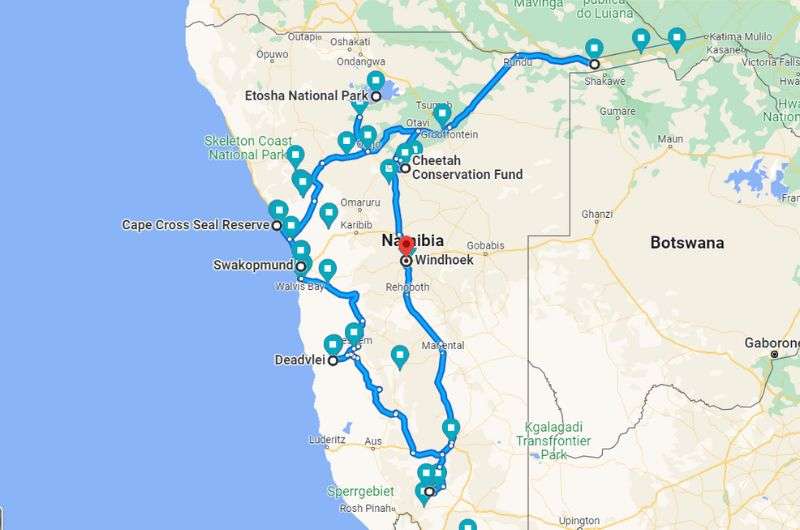
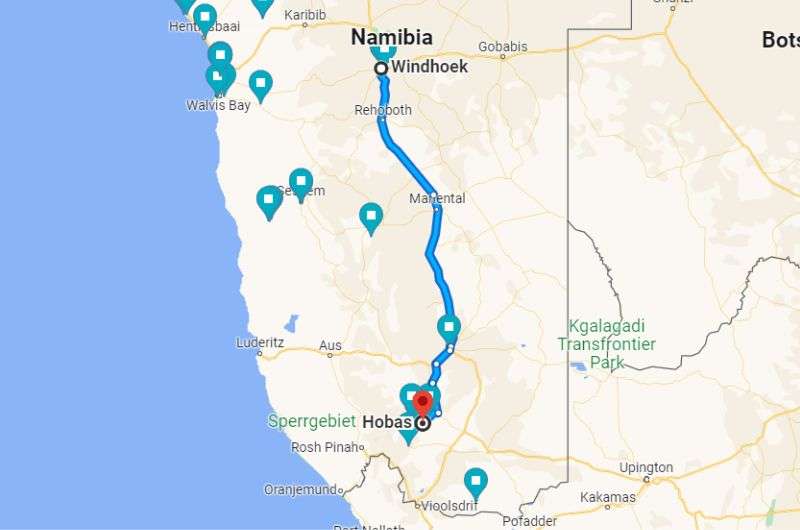
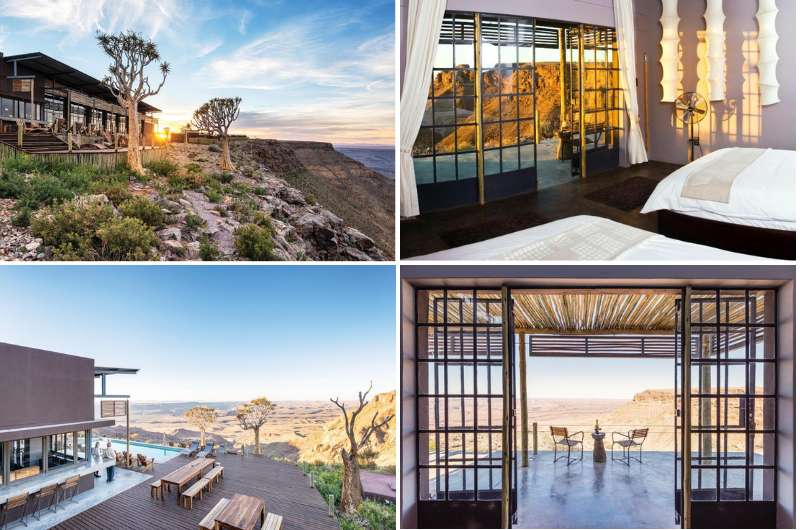
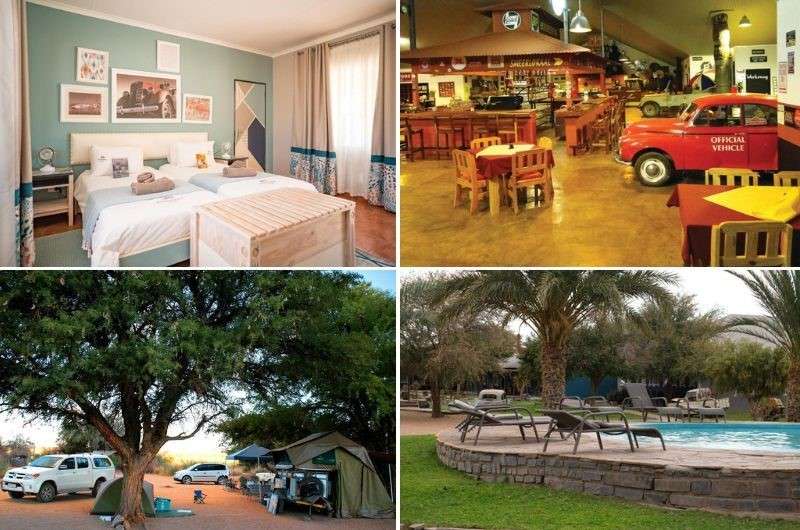
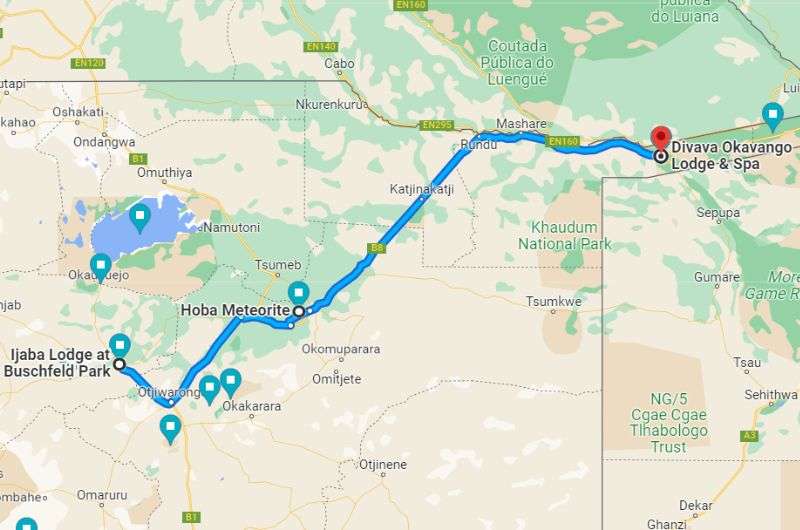
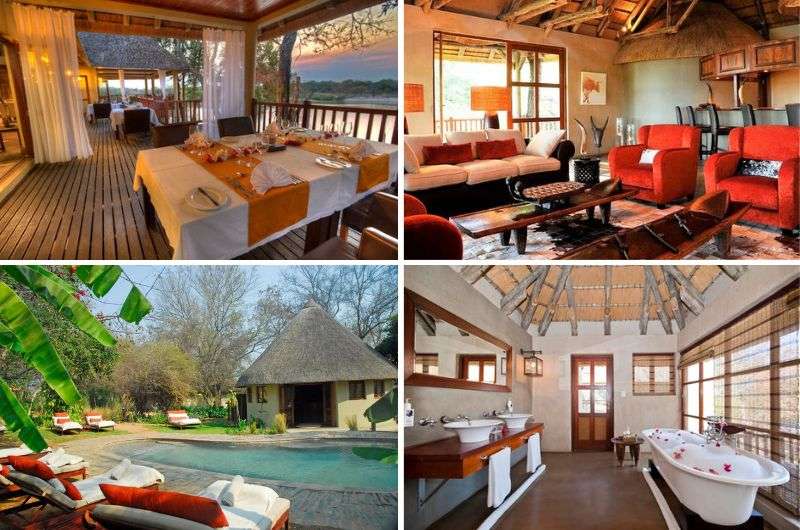
Comments | Thoughts? Give us a shout!
Recommended articles
Namibia can seem like a daunting destination at first, especially if you're not accustomed to the stark, raw beauty (or is it?!) of its landscape. But rest assured, the Namibians are friendly and welcoming...
The animals in Namibia aren’t just something you stare at from your car at the safari parks. Hold on to your safari hat because Namibia is about to shatter your preconceptions of what wildlife in Africa is all about.
Let’s be completely honest here: if you’re self-driving in Namibia, you’re in for an adventure! But who am I kidding, you’re traveling to Namibia, you WANT an adventure, and you expect nothing less.
About me
Hi, I’m Jan. I travel fast and intensely, whether I’m exploring the buzz of Tokyo in 3 days or road-tripping through mountains and beaches on a 3-week Thailand adventure. And no matter where I am, you’ll always find me in a comfortable hotel at night and eating the best food.
If that sounds like your kind of journey, hop on board, and let’s explore the world together!
I started this blog after realizing how tough it can be to find reliable, authentic travel info. You wouldn’t believe how many “travel bloggers” never even visit the places they write about! On Next Level of Travel, you can count on my full honesty and insights drawn from my firsthand experiences.
More about meHere’s the deal: not every destination is all superlatives and unicorns. I’ll let you know if a tourist attraction isn’t worth your time, like skipping overrated stops in my 2-week Spain itinerary. And when I find something truly special—like the perfect mix of culture and nature in Cape Town—you can trust that it’s worth adding to your itinerary.
Next Level of Travel s.r.o.
ID: CZ07036612
Adress: Voctářova 2449/5, Praha, Czech Republic
Created by myTimi